The European Space Forum 2022 examined the innovative programmes, initiatives and policies being put forward. Across two days, 60 speakers, 280 in-person delegates and over 400 speakers gathered to discuss the most pertinent topics across the EU space landscape.
The main topics of the event included:
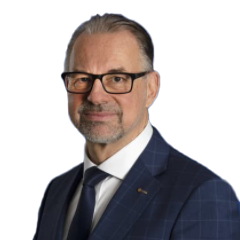
 Josef Aschbacher
Josef Aschbacher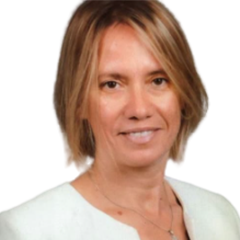
 Evi Papantoniou
Evi PapantoniouMrs Evi Papantoniou is Director for Space (acting) in the European Commission – Directorate-General for Defence Industry and Space (DEFIS), responsible for EU Space Policy and EU space flagships, Copernicus and Galileo /EGNOS. She is responsible in particular for actions supporting the EU aerospace ecosystem, as well as for relations with the European Space Agency and the EU Space Programme Agency.
Until December 2019, she was the Head of Unit in the Directorate-General for the Internal Market, Industry, Entrepreneurship and SMEs (DG GROW) – responsible for legal and inter-institutional aspects of Galileo/EGNOS, the EU satellite navigation programme. Previously, she contributed in setting-up the EU Defence Fund and dealt with EU response on countering hybrid threats.
She also worked in European Commission Task Force for Greece, assisting the Greek Government in the EU bailout Programme implementing structural reforms in the area of business environment and justice reform.
As competition lawyer by training, she worked for several years in DG Competition, on competition enforcement in anti-trust, but also state aid control.
Before joining the European Commission, she worked in the European Court of Justice in Luxembourg and as a competition lawyer in Paris.
She holds a Master of Laws (LLM) in EU law from the College of Europe in Bruges.
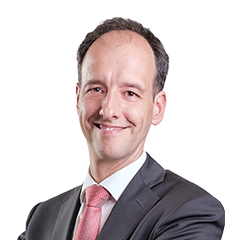
 Rodrigo da Costa
Rodrigo da CostaOn 16 October 2020, Rodrigo da Costa took up his duties as Executive Director of the European Union Agency for the Space Programme (EUSPA), formerly the European GNSS Agency (GSA). Prior to this, he was the Galileo Services Programme Manager from March 2017.
Before joining the GSA, Rodrigo da Costa held several senior project management, business development, and institutional key account management positions in the space industry, in the areas of human space flight, exploration, launchers and R&D.
Rodrigo da Costa holds a degree in Aerospace Engineering from the “Instituto Superior Tecnico” in Lisbon, a Master’s degree in Aerospace Engineering from the University of Delft, and an MBA from the EuroMBA consortium of Business Schools.”

 Rajeev Suri
Rajeev Suri Rajeev was appointed as Inmarsat’s Chief Executive Officer in March 2021 and as Chair of the Global Satellite Operators Association (GSOA) in March 2022.
He joined Inmarsat from Nokia, where he was most recently President and Chief Executive Officer. From 2009 to 2014 Rajeev was Chief Executive Officer of Nokia Solutions and Networks. During his tenure as CEO, he transformed Nokia into a top two telecommunications infrastructure company, led the consolidation of the sector from ten to three major players, positioned Nokia as a leader in a world connected by 5G and shaped by increasing digitalisation and automation. Under his leadership, Nokia acquired the networks businesses of Siemens, Motorola, Alcatel-Lucent, including the famed Bell Labs, successfully expanded into enterprise vertical markets, created the world’s leading standalone telecom software business, significantly grew the annual recurring revenue patent licensing business and engineered the return of the Nokia brand to mobile phones.
Rajeev has lived and worked in the Middle East, Asia, Africa and Europe. In March 2021, he was reappointed as a Commissioner of the United Nations Broadband Commission. He was Co-Chair of the digitalisation task force for the B20 and member of various digital and healthcare committees at the World Economic Forum. Rajeev was a member of the Chinese Premier’s Global CEO Council from 2014 to 2020, a recipient of China’s Marco Polo award; the highest honour awarded to an international business person from the Chinese government. Rajeev is an engineering graduate in Electronics and Communications and has been awarded an Honorary Doctorate by Manipal University.

 André-Hubert Roussel
André-Hubert RousselBio will be updated soon.
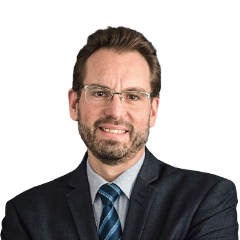
 Marc Serres
Marc SerresMarc Serres is the Chief Executive Officer of the Luxembourg Space Agency. He heads the Luxembourg Delegation at the European Space Agency (ESA) and represents Luxembourg in the Council of ESA. He is Member of the International Academy of Astronautics.
He has been Director of Space Affairs at the Ministry of the Economy of Luxembourg since January 2014. Before joining the Ministry of the Economy, Marc Serres managed Luxembourg’s relations with ESA at the Ministry of Higher Education and Research as an industrial policy officer for 8 years. Prior to becoming a civil servant, he spent 5 years in the satellite communications antenna manufacturing industry within the company HITEC Luxembourg S.A., first as a Project Engineer and finally as Chief Engineer for satcom products development.
Marc Serres holds a PhD in optoelectronics and a Master in electrical engineering with specialty in microwave frequencies, both from the Université catholique de Louvain in Belgium.
The inaugural edition of the European Space Forum in 2021 was held virtually, and brought together more than 700 key stakeholders and thought leaders from across the space and satellite sectors. Across 2 full days of interactive discussion and debate, the following main topics were discussed:

 Thierry Breton
Thierry BretonThierry Breton is the EU Commissioner for Internal Market, in charge of industry, digital, space, defence, audiovisual and tourism. Engineer in computer science, he began his career as an entrepreneur in the IT sector. A French business leader, he was CEO of Thomson electronics (1997-2002), France Telecom (2002-2005) and Atos (2009-2019). French Minister of the Economy, Finance and Industry (2005-2007), he was a teacher at Harvard (2007) and authored a number of technology thrillers published in more than 40 languages.

 Josef Aschbacher
Josef AschbacherJosef Aschbacher, of Austrian nationality, is a geophysicist by education. He joined ESA in 1990. Throughout his career he held various positions in different locations. He also worked for the European Union. In 2016 he became ESA’s Director of Earth Observation, and in 2021 he took office as ESA’s Director General.

 Rodrigo da Costa
Rodrigo da CostaOn 16 October 2020, Rodrigo da Costa took up his duties as Executive Director of the European Union Agency for the Space Programme (EUSPA), formerly the European GNSS Agency (GSA). Prior to this, he was the Galileo Services Programme Manager from March 2017.
Before joining the GSA, Rodrigo da Costa held several senior project management, business development, and institutional key account management positions in the space industry, in the areas of human space flight, exploration, launchers and R&D.
Rodrigo da Costa holds a degree in Aerospace Engineering from the “Instituto Superior Tecnico” in Lisbon, a Master’s degree in Aerospace Engineering from the University of Delft, and an MBA from the EuroMBA consortium of Business Schools.”
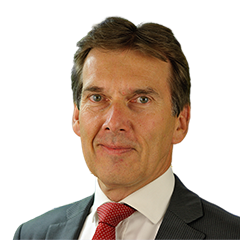
 Matthias Petschke
Matthias PetschkeBio to be updated soon.

 André-Hubert Roussel
André-Hubert RousselBio will be updated soon.

 Stephen Spengler
Stephen SpenglerStephen Spengler is a 36-year telecommunications and satellite industry veteran with experience in the media, broadband, government, and internet sectors. Mr. Spengler is chief executive officer of Intelsat, the world’s largest satellite services provider. He is current the chairman of the EMEA Satellite Operators Association, where he convenes a Board of other satellite operator Chief Executives around critical issues affecting the industry.
Mr. Spengler’s key accomplishments at Intelsat include the development of Intelsat’s next generation of managed service solutions for an array of network applications; a $2B investment in the groundbreaking Intelsat Epic high-throughput satellite network and a series of strategic equity investments to catalyze satellite innovations. He is currently leading Intelsat’s initiative to establish the industry’s first software defined satellite/terrestrial network based on the 5G standard, designed to provided unprecedented network speeds, economics and coverage.
Mr. Spengler is a member of the United Nations Broadband Commission for Sustainable Development and serves on the corporate boards of Intelsat SA and Kymeta Corporation. He has testified before the U. S. Senate Committee on Commerce, Science, and Transportation regarding the future of the commercial satellite industry.
Mr. Spengler joined Intelsat in 2003, and has served in executive roles of increasing responsibility, including sales, marketing, strategy, and business development. These responsibilities leveraged Mr. Spengler’s global orientation and thought leadership. He has generated new business and forged strategic relationships across the world in developed and developing markets and has expertise in meeting the challenges and opportunities that exist in international markets and emerging technologies. Prior to assuming his current role in 2015, he was the president and chief commercial officer of Intelsat. He held senior management positions at Viasat Satellite Networks, Scientific-Atlanta Europe, GTE Spacenet International, and GTE Corporation before joining Intelsat. Mr. Spengler earned a Bachelor of Arts degree from Dickinson College and a Master of Business Administration from Boston University.
Intelsat owns and operates a fully integrated network of over fifty commercial communications satellites that deliver broadband connectivity to businesses and communities in over 200 countries. It provides diversified communications services to the world’s leading media companies, fixed and wireless telecommunications operators, data networking service providers for enterprise and mobile applications, multinational corporations and ISPs. Intelsat is the leading provider of commercial satellite capacity to the U.S. government and other governments.

 Sorin Ducaru
Sorin DucaruAmbassador Sorin Dumitru Ducaru is the Director of the European Union Satellite Centre (SatCen) since June 2019. He has previously held the position of NATO Assistant Secretary General and Head of the NATO Emerging Security Challenges Division, as well as the positions of Romania’s ambassador to NATO, USA and to the UN in New York. He also assumed various positions in the Romanian Ministry of Foreign Affairs (MFA) such as: spokesperson of the MFA, director of the Minister’s Office and head of the Directorate for NATO and Strategic Issues.
Ambassador Ducaru’s professional background reflects a quite rare blend of technical and political studies. He is holding degrees in Applied Electronics & Computer Studies (BS, Bucharest Polytechnic University), Political Science & International Relations (M.Phil, University of Amsterdam) and International Economic Relations and Institutional Management (Ph.D, Academy of Economic Studies, Bucharest). He has been intensely engaged intellectually and professionally bridging the technology-policy gap and the impact of technology upon security.
Ambassador Ducaru has been also engaged in academic and scientific activity, as associate or guest lecturer at the National University for Political Studies (Bucharest, Romania), NATO Defence College (Rome, Italy), Kennedy School of Government, Harvard University (Cambridge, USA), Leiden University (Netherlands).
He is the Honorary Chairman of the Scientific Board of the New Strategy Center (Bucharest), European Council of Foreign Relations Member, Advisory Board Member of Digital Society Institute (Berlin), the NATO Cybersecurity Centre of Excellence (Tallin), Special Advisor to the Global Commission on the Stability of Cyberspace (The Hague) and former Senior Fellow at the Hudson Institute (Washington DC).
In 2002, Ambassador Ducaru was awarded the title of “Ambassador of the Year” by the Romanian MFA and, in 2008, the rank of Knight of the National Order “The Star of Romania” by the president of Romania. He is married and has two teenage children.




If you are interested in speaking, sponsorship and visibility opportunities, please contact Karolina Stankiewicz at space@forum-europe.com / +44 (0) 2920 780 070.
Note: All timings are in Central European Time (CET).
Benedikta von Seherr-Thoß is Managing Director for CSDP at the European External Action Service. Until October 2022, she served as Security Policy Director of the German Federal Ministry of Defence (MoD), dealing inter alia with bilateral relations, NATO, EU, nuclear policy as well as coordinating the MoD’s work on a new German National Security Strategy. From 2017, she was EU Representative of the German Ministry of Defence and Head of the EU Division in the Department for Security Policy for four years. She also had the ministerial lead on Germany’s EU Council Presidency in 2-2020. Prior to that, she worked as Political Advisor to Minister of Defence Ursula von der Leyen for two years. From 2013-15, she was the first defence civilian to participate in the National General/Admiral Staff Officer Course of the Bundeswehr. Before that, she spent more than two years working as Senior Political Advisor and then Deputy Director to the NATO Senior Civilian Representative at ISAF Headquarters in Kabul/Afghanistan. From 2007-11 she functioned as Deputy Head of the NATO Division in the Policy Planning & Advisory Staff to the Minister of Defence, focusing on the Alliance, transatlantic issues and nuclear policy. She started her career at NATO Headquarters in 2004, where she worked as Desk Officer in the Political Affairs & Security Policy Division. Benedikta studied Modern History at the University of Oxford, from where she graduated with a Masters and a PhD.
Miguel Belló is the Commissioner for Aerospace Recovery Plan at the Ministry of Science and Innovation of Spain, with responsibility of a 4,5 B€ program for the sector and the implementation of
the Spanish Space Agency. He was also CEO of the Atlantic International Research Centre (AIR Centre),international non-profit organization to develop scientific and technological applications in the Atlantic region with Headquarters in Azores Islands (Portugal). Miguel has been entrepreneur in the European Space sector involved in the management of International Space Programs and Institutions with 40 years of experience in the space sector. Promoter of the DEIMOS 1 (launch 2009) and DEIMOS 2 (launch 2014) Earth Observation satellites and responsible of its operations and downstream applications.
Miguel was founder and CEO of all companies in DEIMOS Group in Spain, Portugal, United Kingdom, Romania and Italy. He is expert in Space Systems Engineering, Earth Observation systems and applications, Mission Analysis, Flight Dynamics, Interplanetary Mission Design and Space Debris.
Miguel holds a PhD in Aerospace Engineering at the Flugmechanik Institut, Zentrum fur Luft- und Raumfahrttechnik, Technische Universität Braunschweig (Germany), in 1993, a M.S. Degree in Aeronautical Engineering, at Universidad Politécnica de Madrid, in 1983, with end of Studies Honour Award and a General Management Programme (MBA), in 2000-2001, at IESE (Madrid).
Miguel is member of the Board of Trustees and Full Member for Section 2 (Engineering Sciences) of the International Academy of Astronautics (IAA), Member of the Astrodynamics Committee of the International Astronautical Federation (IAF), Chairman of the Mission and Constellation Design Session of the IAC Astrodynamics Symposium and member of the Space Traffic Management Committee of the IAA. Miguel was also Member of the European Space Agency Space Debris Advisory Group (SDAG) and Invited Professor on Space Debris Environment at the Universidad Politécnica in Madrid and Celestial Mechanics at La Sapienza University in Rome.

Brigadier General Juan Sanchez Delgado is the Director of Security and Planning of the Spanish Space Agency.
He graduated from the Air Force Academy as 1st lieutenant in July 1990. From 1992 to 2001, he was assigned to the 31st Wing as a C-130 Hercules pilot. Between 1995 and 1997, he served as exchange pilot with the USAF in Little Rock (USA). In 2001 he was promoted to major, assigned to Air Staff Plans Division. He worked in the Special Programs Section until 2005. In 2006 he completed the Armed Forces Staff Course and returned to the Programme Section in the Air Staff Plans Division. In 2007 he was assigned to the 45th Air Force Group where he was head of the General Secretariat and the Operations Section. In 2011 he was promoted to lieutenant colonel and continued in the 45th Group as Deputy Chief. In 2015 he was assigned to the Cabinet of the Secretary of State for Defense as air and space advisor. In 2018 he was promoted to colonel and appointed Head of the Programs Section in the Air Staff Plans Division. Between July 2019 and June 2022 he commands the 45th Air Force Group. In August 2022 he was promoted to the position of Brigadier General and he was appointed advisor to the Deputy Air and Space Force Chief of Staff. In that position BG. Sánchez has been leading the works on the Air Force Space Strategy and the creation of the Space Command within the Air and Space Force structure.
In June 2023 he has been assigned to the Spanish Space Agency, as Director of Security and Planning.
He has an extended aeronautical experience: C-130 Instructor and Test Pilot (US), Falcon 900B Pilot (US), Airbus A310 Pilot (Germany), with a total of 7,300 flight hours. .
He has participated in mission overseas: Air Operations over the Balkans (Icaro Detachment, 1995-2001), Chief of Operations Herat Air Base, Afghanistan (Oct 2008-Feb 2009), Chief of the Marfil Detachment in support of Operation Barkhane, Senegal (Jul-Oct 2016).
Brigadier General Sanchez Delgado has performed numerous military courses and holds a long list of awards and decorations.


Ambassador Sorin Dumitru Ducaru is the Director of the European Union Satellite Centre (SatCen) since June 2019. He has been appointed by the SatCen Board represented by the 28 EU member states and subsequently appointed by Federica Mogherini, the High Representative of the Union for Foreign Affairs and Security Policy / Vice-President of the Commission for this position.
Ambassador Ducaru is a Romanian career diplomat with a longstanding experience in trans-Atlantic and International Relations and a particular expertise in the field of emerging security challenges and the impact of new technologies upon security. Ambassador Ducaru’s professional background reflects a quite rare blend of technical and political studies. Holding degrees in Applied Electronics & Computer Studies (BS, Bucharest Polytechnic University), Political Science & International Relations (M.Phil, University of Amsterdam) and International Economic Relations and Institutional Management (Ph.D, Academy of Economic Studies, Bucharest). He has been intensely engaged intellectually and professionally bridging the technology-policy gap and the impact of technology upon security.
Ambassador Ducaru held the post of NATO Assistant Secretary General for Emerging Security Challenges from September 2013 to November 2017. In this capacity he was the head of the Emerging Security Challenges Division at NATO-HQ, Chair of the Cyber Defence Committee and also coordinator and manager NATO’s Science for Peace and Security Programme. As Chair of NATO’s Cyber Defence Committee and Cyber Defence Management Board, he has been in charge of NATO’s cyber policy development and implementation.
Sorin Ducaru held three ambassadorial positions on behalf of Romanian, namely at the UN in New York, in Washington DC and at NATO in Brussels. He also assumed various positions in the Romanian MFA, such as: counsellor to the Minister, spokesman of the MFA, Director of the Minister’s Office and Director for NATO and Strategic Issues. He has been also involved in academic and scientific activity as guest lecturer at the NATO Defence College, Rome; Oxford University, UK; Kennedy School of Government, Harvard University, USA; Leiden University, NL and as associate professor at the Romanian National University for Political Studies and Public Administration. He has also been a Senior Fellow at the Hudson Institute in Washington DC, USA, chair of the Scientific Board of the NEW Strategy Centre, Romania and a Special Advisor to the Global Commission on the Stability of Cyberspace. In the year 2008 Ambassador Ducaru was awarded the rank of Knight of the National Order “The Star of Romania”.


Isabelle Mauro is Director General of the Global Satellite Operators Association (GSOA) that represents the interests of 29 global and regional satellite operators. She reports directly to their Chief Executives.
Under Isabelle’s leadership, GSOA and its member CEOs lead the effort to showcase the benefits of satellite communications for a more inclusive and secure society – vital to bridging the world’s digital divide, achieving the UN’s Sustainable Development Goals and realizing the 5G ecosystem.
Isabelle has 25 years experience in the Telecoms and Technology sector, starting at the GSMA, where she was responsible for government and international Affairs. In 2015 she moved to New York to join the World Economic Forum as Head of Information, Communications and Technology Industries, managing the portfolio for 60+ Tech companies globally and leading initiatives on inclusive and sustainable digital transformation.
Isabelle is passionate about inclusion and sustainability. She is Chair of the High-Level Advisory Board of the DigitalGoesGreen Foundation. She also sits on the Advisory Board of Women in Tech and is a member of the UNESCO Advisory Group for the Declaration on Connectivity for Education.
Isabelle holds an MSc in European Politics and Policy from the London School of Economics. She is fluent in French, English, Italian and Spanish.

Space has become a key strategic domain, and in addition is increasingly playing a central role in security and defence. Against this backdrop and in the context of the increasing geopolitical challenges that are being seen today, the European Commission and the European External Action Service (EEAS) have published the EU Space Strategy for Security and Defence. The strategy outlines proposed plans and actions to strengthen the resilience and protection of space systems and services in the EU, as well as outlining concrete measures to respond to space threats and outlining a strategy to maximise the use of space for security and defence purposes. This session will look at the role that all stakeholders need to play in order to deliver the goal of a stronger and more resilient EU through space.

Guillaume de La Brosse is currently Head of Unit in charge of space innovation, start-ups and economics in the Commission (Direction-General for Defence Industry and Space). Previously, Guillaume was assistant to the Director-General.
Guillaume joined the Commission in 2016, as member of the Commission’s think-tank and member of the UK Task Force, where he dealt with security, defence and space.
Before joining the Commission, Guillaume worked in the European Defence Agency as assistant to the Executive Director (2011-2016) and as pol-mil adviser in the French Permanent representation to the EU (2006-2011).


Major General (Ret) Pascal LEGAI, was a mission preparation officer in the French Air & Space Force. He acquired experience mainly in the fields of geography, imagery, international relations, Space and Security issues. He has extensive international experience in the geospatial information domain. He had been appointed as a geographer in the French Air Force staff in Paris for 5 years (1994-1999). He was also the Head of the French Imagery Intelligence Centre (2004-2006), Human Resources adviser of the French Air Force (2006-2008) and the Commanding Officer of the French Air Force Base in Grenoble (2008-2010) before joining the EU Satellite Centre in July 2010 as Deputy Director.
Pascal LEGAI has been elected by the Member States as the EU Satellite Centre Director on the 1st January 2015, an imagery analysis centre, based near Madrid, Spain, providing Geospatial Intelligence (GEOINT) and Imagery Intelligence (IMINT) products and services to support the EU external action. He left this position on the 30th of April 2019. On 1st of May 2019, he has been appointed to the European Space Agency (ESA), first as a Senior Security Adviser to the ESA/Earth Observation Director, in Frascati (Rome), and today as a Senior Security Coordinator to ESA DG in Paris.
He has a PhD in International Relations, a law degree, several master degrees in Imagery Processing, Computer Sciences, in History, in British Civilization, in Mathematics. He is an aerospace engineer and has also an Engineer Diploma in the field of the geographic sciences.


Colonel Solbes was born in 1966 and he has an extensive and relevant military carrier.
In 1992 he was part of the 23th Wing in Badajoz, and instructor of the Spanish Air Force Academy;
In 1997 he worked as instructor at the USAF Academy in Colorado Springs and T38 Instructor Pilot in the United States Air Force, in Columbus AFB;
In 2002 he was appointed as Squadron Commander and member and Team Leader of the National Aerobatic Team Patrulla Aguila;
In 2006 he was part of the Cabinet of the Chief of Staff of the Spanish Air & Space Force;
In 2009 he attended the German Joint Forces Staff College, in Hamburg;
From 2013 to 2016 he worked as Assistant to the Defence Policy Director and Director of Protocol at the Cabinet of the Minister of Defence.
In 2016 he was appointed as Air Attaché at the Embassy of Spain in Berlin, Bern and Vienna;
In 2019 and 2021 he worked as EU Defence Policy Analyst.
Finally he had the chance to serve at the Space Division of the EU External Action Service in Brussels, as member of the EU Space Threat Response Architecture team.
From August 2022 until now he works in the Spanish Air and Space Force Staff / Space, focused on the implementation of the Space Strategy of the Air and Space Force and also to the planning and establishment of the new Spanish Space Agency.
In the coming months he will be assigned to the Spanish Space Command in Torrejón AFB, Madrid.
Colonel Solbes has also a long list of awards and decorations.


Ms. Cristina Vives leads the Space Business Line in Indra.
Graduated in Physical Sciences in Madrid, began her professional career in the Space Sector as Head of the Technology Area of the Component Laboratory working with the European Space Agency.
She has developed her professional career in different areas of knowledge as Program Manager in the Eurofighter Program, POACCS III Program (Portuguese Air Command and Control System). Radar System Lanza N, etc.
In the area of Radar and Command and Control Systems Cristina has held different managerial positions in Indra, such as Director of National Defense Programs, Director of Air Space Management and Director of Business to Government Defense Systems in Europe and Australia. Afterwards she became Managing Director of Defense Systems in Indra Australia and Director of the Defense Business Line Aerospace and Military Air Traffic Management back in Spain.
Cristina holds a Master in Business Management and Administration (2004), and a Project Management Professional Certificate of the Program Management Institute.


Torsten Kriening is Publisher and CEO of SpaceWatch.Global, an independent platform for space activities in a geopolitical context.
He is a business executive with academic and professional experience in space management, satellite communications, and broadcast technology. He has an electrical and telecommunications engineering background and studied information technology and computer science at the Technical College Berlin. Torsten began his career as software developer, before moving into sales management and business development, working at companies including 3Com, Lucent Digital Video, SES Astra, Bertelsmann and PTScientists.
A proud Berliner with a global outlook, Torsten expanded his horizons even further by attending the International Space University (ISU) and earning an Executive MBA. His ISU thesis analysed the capacity-building visions and opportunities of countries in the Gulf region, and he brings experience developing strong and lasting business relationships with Middle Eastern countries. With the global Space Café® talk series and the Space Café® Podcast he created widely recognized space outreach formats.

Europe has historically lagged behind other regions in terms of investment and funding for space. Despite being home to the world’s most reliable launch service provider, some of the world’s most successful satellite operators and leading manufacturers, huge challenges still remain when it comes to securing the public funding and private sector investment that is crucial to drive forward the sector. This session will look at the conundrum that is currently faced – how can the funding requirements of a rapidly growing European space sector be met in the extremely challenging current global climate?

Mrs Evi PAPANTONIOU is Director for Space (acting) in the European Commission – Directorate-General for Defence Industry and Space (DEFIS). Ms Papantoniou is in charge of EU Space Policy and EU space flagships, Copernicus and Galileo /EGNOS. She is responsible in particular for actions supporting the EU aerospace ecosystem, as well as for relations with the European Space Agency (ESA) and the EU Space Programme Agency (EUSPA).
Until December 2019, she was the Head of Unit in the Directorate-General for the Internal Market, Industry, Entrepreneurship and SMEs (DG GROW) responsible for legal and inter-institutional aspects of Galileo/EGNOS, the EU satellite navigation programme. Previously, she contributed in setting-up the EU Defence Fund and dealt with the shaping of EU response on countering hybrid threats.
Ms Papantoniou has also worked in the European Commission Task Force for Greece. In that capacity, she supported Greece’s structural reform efforts under the economic adjustment programme in the area of business environment and justice reform.
As competition lawyer by training, she worked for several years in DG Competition of the European Commission on competition enforcement in anti-trust, but also state aid control.
Before joining the European Commission, she worked in the European Court of Justice in Luxembourg and as a competition lawyer in Paris.
She holds a Master of Laws (LLM) in EU law from the College of Europe in Bruges.

José Manuel Rodriguez, as CFO at PLD Space, leads the financial strategy and operations of the company, including the development of the fund-raising division. He holds an Executive MBA from ESCP Business School and has completed post-graduate studies at Corporate Finance Institute (CFI). José Manuel has more than 15 years experience managing the financial strategy of hyper-growth tech companies, including a wide range of digitally-native scale-up companies operating within disruptive sectors. He has managed more than 350 Million € in capital raising and debt management at companies like Tiko.es, MedUX, Guestperience, Kelisto and Red Karaoke.

Pascale Ultré-Guérard has been appointed Deputy Director for Programs at the Strategy Directorate of CNES in January 2022. She manages 50 experts working in 5 departments covering all domains of activity at CNES: access to space, Earth observation and sciences, universe science and exploration, safety and defence, telecommunication, navigation, facilities plus 2 transverse departments for programming and science coordination.
Before that she spent more than one year at the Ministry of higher education, research and innovation as Head of Space and Defence Department.
From 2017 to 2020, she was deputy Director for Programming, International affairs and Quality.
Before that, she spent 11 years as Head of Earth Observation Program and team at the Strategy and Programs Directorate of CNES and was CEOS (Committee of Earth Observation Satellites) SIT (Strategic Implementation Team) chair from 2014 to 2015.
She joined Cnes in 1999 as Program manager in Solid Earth Sciences.
Pascale Ultré-Guérard has a PhD in geomagnetic field modeling delivered by IPGP (Institut de Physique du Globe de Paris).


Strategy and Resources encompass the following activities: strategy, M&A, investments, fleet deployment, regulatory, capacity planning, CSR and innovation.
Jean-Hubert Lenotte joined Eutelsat in September 2013 as the Group’s Director of Strategy.
In July 2016 he was appointed Chief Strategy and Strategic Marketing Officer and became a member of Eutelsat Executive Committee.
In July 2019, Jean-Hubert Lenotte took over the Deployment Department that has been merged with the Strategy Department, now renamed the Strategy and Resources Department. The M&A and Investments team was also brought under Jean-Hubert Lenotte.
Jean-Hubert has also been appointed to the Board of Directors of OneWeb in November 2022 and to the Board of Directors of Broadpeak in April 2022.
He began his career at Bouygues where he was notably part of the project team that created Bouygues Telecom in 1994. He joined McKinsey & Company in Paris in 1997 and was elected Partner in 2004. In 2009, he became head of the Consumer Service Line of McKinsey & Company in the global telecommunications, media and technology practice.
Jean-Hubert is a Belgian national. He is a graduate of the Ecole Polytechnique and holds a Masters degree in Economy and Finance from the Institute of Political Sciences in Paris.


Yvan-Michel began his career in 1991 in the software industry. He spent 10 years in marketing, business development and management at large international software vendors such as Dassault Systèmes, Engineering Animation Inc. (now Siemens PLM).
Since 2001, Yvan-Michel works in the Venture Capital industry and is an active contributor of the investment and innovation ecosystem of high growth startups. He is board member of several innovative companies such as Exotrail, Cysec and Vestack. He was an investor of Comitéo (acquired by Natixis), Sevenhugs (acquired by Qorvo) and WebGeoServices (acquired by Capza). He is focusing on Digital & Deeptech ventures and is particularly in charge of a European SpaceTech Fund and the Paris Region Venture Fund.
Yvan-Michel holds a MSc in Computer Science from ESIEA.

Matija Rencelj is the Research Manager at the European Space Policy Institute (ESPI). His work focuses on inter-institutional relations, and European and global policy developments, with studies undertaken on topics ranging from orbital carrying capacity to the history of commercial space. He previously worked with the European Space Agency, the European Commission, in the aviation and commodities sectors, and started his career as a lawyer at a corporate law firm. He holds an LL.M. in Air & Space Law from McGill University and a Law Degree from the University of Ljubljana. At ESPI, he first served as Research Fellow for two years, before taking on the responsibility to oversee the Institute’s research output, manage day-to-day operations, and translate the Institute’s work to real-world impact.
The question of how green space is, is a moot one but also a fundamental one given that almost every other industry is setting Net Zero objectives for itself. While there is no doubt that space-based services such as those provided by Copernicus are essential to support a greener future for Europe, raw materials and chemicals used in both the manufacture and launch of satellites and launchers raise important questions around the sustainability of the sector. Yet the resulting space-based services – be they communications, earth observation, navigation or IoT services – can serve huge areas, relying almost solely on solar power to do so for years on end, compared for example, with terrestrial 5G services which are set to consume high amounts of power. This session will take a 360 degree look at the key relationship between the space sector and sustainability. It will discuss the best way to minimise the carbon footprint of space activities themselves, and also explore how the contribution of space-based services towards key climate and other sustainability goals can be maximised.

Alessandro Grasso currently is the Project Manager for Earth Observation at the Luxembourg Space Agency. As part of his role he is responsible for the Earth Observation activities at the agency, as well as being the Luxembourg delegate to the ESA Programme Board on Earth Observation and to the European Commission Copernicus Space Programme Committee.
Alessandro holds a master degree in Aerospace Engineering from the University of Bristol and a Master of Space studies from the International Space University.
Previously he has worked almost a decade in the European space industry, first with OHB System AG in Germany and then with Airbus Defence and Space in the UK. During this time he was project manager and systems engineer for the definition of large scale European and national space projects such as ESA’s Earth Explorers and the Copernicus missions.

Mauro Facchini is Italian and has an engineering background with a PhD in Mechanical Engineering.
Before joining the European Commission he has worked in Italy, UK and Switzerland, mostly in the academic and research environment.
He joined the European Commission in 2002, initially as supervisor of research projects. Then he has been involved in Space aspects and participated to the definition of the European Space Policy from its early days in concluding agreements with ESA and in drafting and including article 189 (EU Space Competence) in the Lisbon Treaty.
He has been Head of the Space Research Unit for the EU financing of space activities and then Head for the development and implementation of the European Earth observation programme initially known as GMES and later Copernicus. He is currently the Head of Unit in charge for Earth Observation at the European Commission.
Simonetta Cheli took up duty as Director of Earth Observation Programmes and Head of ESRIN (D/EOP) on 1 January 2022.
Born in Siena, Italy, she studied law and economics at Yale University in the United States, before gaining a degree in political sciences with a thesis on international satellite telecommunication law at the University ‘Cesare Alfieri’ in Florence, Italy. She also holds a diploma of advanced studies (DEA) from the Centre d’Etudes Diplomatiques et Stratégiques (CEDS) in Paris.
Simonetta Cheli has worked at ESA for over three decades, both at Headquarters in Paris and at ESRIN, and in various roles since 15 years within the Directorate of Earth Observation Programmes.
She joined ESA in 1988, working in International Relations, Programme and Strategy, then moved to ESRIN in 1999 as Head of Public and Institutional Relations covering Italy, Spain and Portugal. In 2008, she returned to Paris as Head of the Coordination Office for Earth Observation.
Before her selection as Director of Earth Observation, Ms Cheli was serving as Head of the Strategy, Programme and Coordination Office for Earth Observation, coordinating relations with international partners in the field of environment and climate, and with ESA Member States and the European Union, managing the Programme Board of Earth Observation, and relations with European Partners like Eumetsat and ECMWF. She teaches Masters courses on space, she is a member of various international committees and has received many awards.

Agnieszka Lukaszczyk is a Vice President Government Affairs EMEA at Planet. Before joining Planet, she worked at the European Commission, Directorate General for Internal Market, Industry, Entrepreneurship and SMEs, Space Data for Societal Challenges and Growth Unit. She also worked at the Directorate General for Enterprise and Industry, Space Policy and Research Unit. Before she joined the Commission, Agnieszka was the Brussels Office Director for the Secure World Foundation. In addition to this, she is the former Chairperson and the former Executive Director of the Space Generation Advisory Council in Support of the United Nations Programme on Space Applications. She also worked at the European Space Policy Institute as a research fellow. Agnieszka holds a PhD in Space Security from the Polish Defence Academy, a Master’s degree from the Warsaw School of Economics in Management of Space in New Economies and a Master’s degree from the American University School of International Service in International Politics.


Javier is a Telecommunication Engineer with +12 years of international experience in the aerospace and defense sector at Hispasat and Airbus Defence & Space in different domains, including R&D, international regulation and innovation.
Javier has led different innovation initiatives within Hispasat in areas ranging from IoT to different EU programmes, and is currently participating in the proposal for IRIS2 from the consortium led by some key EU space actors, where he leads the hosting service activities.


Ms. Holla-Maini has nineteen years’ experience in the aerospace industry, starting at Daimler-Benz Aerospace (now Airbus Defense & Space) in Germany. She moved to Brussels in 2000 to represent former Astrium in the Galileo Industries joint venture towards European institutions on the European satellite navigation system Galileo, working on the development of the public-private partnership scheme and other management aspects of the Galileo programme. Since her MBA she has organized workshops on negotiation skills for young managers and remains an active alumnus of HEC.
Ms. Holla-Maini holds a Masters of Business Administration from HEC, France & Stern Business School, NY, USA. She qualified as Solicitor of the Supreme Court in the UK in 1995, holding a LLB Hons Law with German Law degree from King’s College, University of London & the University of Passau, Germany. Aarti lives in Brussels, has 3 children and speaks 5 languages.

The European Commission has moved forward at an unprecedented pace with its plans to implement ‘IRIS2’ – a framework designed to deliver secure, resilient, and autonomous connectivity in Europe. Having published a regulation in 2022, early 2023 saw the start of the procurement process with hopes to select a contractor to start work before the end of the year. This early progress is crucial for the success of the EU initiative, and as this ambitious new flagship programme continues to take shape, this session will address key questions and look at the timeline ahead as Europe looks to deliver on the goals that have been set.

Christophe Grudler is a French Member of the European Parliament (MEP), member of the Renew Europe group.
Historian and journalist by training, his political commitment started at an early stage of his career. He is particularly involved at the local level in his hometown, Belfort, where he has been elected as a local representative several times.
Within the European Parliament, he is Vice-Coordinator of the ITRE Committee (Industry, research and energy) for the Renew Europe group. He is also a member of the Foreign Affairs (AFET) and Security and Defence (SEDE) committees. Furthermore, he is Vice President of the Sky & Space Intergroup of the European Parliament.
MEP Grudler is particularly involved on energy and industry related topics, as well as on space and defence policies. He has been appointed as rapporteur for the European Parliament on the Initiative report on Energy System Integration and recently on the future European secure connectivity. He is also shadow rapporteur for his group on the European Industrial Strategy, the revision of the Renewable Energy Directive (RED) and on the European Space Programme.


A mathematics graduate specialized in programming, he began his working career in 1997 participating in various tasks of software development from developer to software architect for telecommunications projects. In 2002 he joined GMV, working since then in the satellite control-center area, where he has had different roles till the current role of Director of GMV’s Satellite Control and Mission Planning Unit.
During this period GMV became the world’s leading supplier of ground control systems for commercial satellites, and one of the major GS software providers for ESA and EUMETSAT
In this Role, he manages the vision of the products portfolio evolution.




Dr. Xavier Bertrán is the newly appointed Senior Vice President for European Programmes at SES. His focus is on developing and expanding secure space-based telecommunication services with the European Commission and European Space Industry.
Prior to his position at SES, Xavier careered with Airbus, the aircraft manufacturer, where he held several executive positions and led business areas worldwide for Airbus including Upgrade Services, Diversification Programmes and Airbus ATR SAS as Chairman and Managing Director. Before that as an executive in the Space & Defence division of Airbus, where Xavier was also the Deputy Director for the Galileo PPP programme with the European Commission.
Xavier also served as a Member of the Board Directors of several companies including KID Systeme GmbH, Airbus Interior Services S.A.S, ATR GIE. He was also a non-executive Director at Skytra Ltd.
Xavier earned a doctorate in Mechanical Engineering from the University of Technology (RWTH) in Aachen and a Global Executive MBA from the IESE Business School in Barcelona. As a volunteer, he also served on the Board of the International School of Toulouse (IST) from 2015 to 2021.
Xavier leads the team responsible for the EU IRIS2 programme on behalf of the consortium integrated by Airbus Defence and Space, Eutelsat, Hispasat, SES and Thales Alenia Space.


Koen Willems holds the position of VP EU Programs and Government Relations at ST Engineering iDirect Europe, a market leader in satellite communication technologies. Koen provides his expertise in EU government programs through the Belgian legal entity (proxy) organisation ST Engineering iDirect (Europe) CY NV leveraging the EU footprint and installed base in ground segment satellite networks (www.idirect.net/st-engineering-idirect-europe). On top of his EU activities, Koen defines and develops ST Engineering iDirect’s global strategy for the government and defense market.
Koen Willems has more than 25 years’ experience working in the technology industry. Before joining ST Engineering iDirect in 2008 he was Product Marketing Manager for Europe at the electronics giant TOSHIBA.
Koen has a master’s degree in English and Scandinavian Languages from Ghent University and a master’s degree in Marketing Strategy and Management from Vlekho Business School.
His expertise in the government and defense satellite market has grown through the involvement in different large (EU) programs as well as frequent interactions with the end-user community and a range of topic-related degrees such as the ‘High Studies in Security and Defence’ degree at the Belgian Royal Higher Institute for Defence, the ‘European Session for Armament Officials’ degree at the French National Institute of Higher Defense and the ‘European Advanced Strategy Course on Security and Defense’ degree at the Egmont Institute, IHEDN and BAKS.
You may know Koen as a GovDef satcom technology evangelist through his regular appearance in editorials in satellite focused publications, white papers and speaking slots at conferences around the world.


Thierry Lefort is a Director based in Helsinki, focusing on TMT. He joined Booz & Company in 2008, and has since worked in Western and Eastern Europe, US, Middle East, Russia, and in Helsinki since 2019. MSc in Electrical Engineering from ESEO, France & MBA from RSM, Rotterdam School of Management, concentration in Marketing & Finance.

The huge surge in NGSO satellites in recent years, and the rapid evolution of the sector more broadly are bringing with them new challenges in terms of licensing and regulation, alongside the more obvious space sustainability issues. One of these relates to connectivity, and at ensuring the provision of a licencing framework that protects the needs of existing users whilst encouraging new entrants, innovation and competition. If Europe is to benefit from the extensive new opportunities that are offered by an evolving space sector, then a regulatory framework that grants fair and equitable access to the required connectivity is a vital part of the puzzle.
Dominic works on frequency regulatory and international topics at the European Commission in the directorate general responsible for the EU Space Programme, DG DEFIS. He joined the Commission and the Galileo programme in 2007 after working in the UK for Ofcom and the Radiocommunications Agency on satellite navigation and mobile satellite topics. His work now encompasses all components of the EU Space Programme, including Galileo, EGNOS, Copernicus and the new Secure Connectivity initiative.

Vini Aloia is the Space Policy and Regulation Manager for Astroscale UK. Vini is responsible for all management and implementation of Astroscale UK’s space policy and regulatory activities, including space system licensing activities and overseeing space policy initiatives and tasks associated with Astroscale’s space projects. Prior to joining Astroscale, Vini worked as Legal and Regulatory Officer at ispace EUROPE S.A., as Associate Legal Counsel at SES S.A., and as a trainee at the European Space Agency (ESA). Vini holds two degrees from the International Space University, an LL.M Master of International and Comparative Law, International Business Law from the University of Helsinki, and a LL.B Bachelor of Laws from the Pontifical Catholic University of São Paulo, Brazil.
Vinicius is a member of the International Institute of Space Law, a member of the European Centre for Space Law (ECSL), a member and coordinator of the Space Law Research Centre at the NOVA Law School in Portugal, an invited member of the Commission on Space Law of the Brazilian Bar Association (Santos), a full member of the Brazilian Bar Association, and the director of International Cooperation of the Space Law and Policy Research Group at the Catholic University of Santos, Brazil. Vini is the author of international publications and presentations on topics related to space law and policy and commercialisation of space activities, including the long-term sustainability of outer space activities, on-orbit servicing and active debris removal, exploration and use of space resources, national space legislation, and export control.


Ivan helps businesses understand policy contexts in new markets and navigate complex regulatory landscapes for emerging technologies.
Ivan helps businesses with their Space and Spectrum strategies globally from a policy and regulatory angle and with a focus on emerging technologies.
In recent years, Ivan assisted satellite operators and new space ventures with global market access, ITU support, project management, and business strategy.
Prior to joining Access Partnership, he spent more than 10 years in corporate affairs, institutional relations, policy analysis, political reporting, and advocacy. He previously worked for the Telecommunications Division at Euromoney Institutional Investor PLC.
Ivan holds an MSc from the University of Cape Town, an MRes from the University of London, a BSc-BA from Universidad Complutense (Madrid) and Mid-Sweden University, and a BSc from UNED-Spain. He speaks Spanish, English, and Portuguese.


John P. Janka serves as Chief Officer, Global Government Affairs & Regulatory at Viasat, Inc., an international communications solutions provider with a long legacy of designing, building and operating telecommunications and broadband networks of all types. He has extensive experience in the telecommunications, media, and technology (TMT) sector from over three decades of work at the global law firm Latham & Watkins, where he was a partner and served as the head of its Communications Law practice group. In that capacity, Mr. Janka represented entities ranging from startup entities to global leaders, whom he counseled on a variety of strategic matters. His clients included domestic and international satellite, wireless, and other terrestrial telecommunications companies; Internet service providers; video programming and other content suppliers; media services companies; television and radio broadcast operators; equipment manufacturers; and banks, private equity firms, and other investors.
Mr. Janka consistently has been recognized as a leading lawyer in publications such as Euromoney’s Expert Guides to the World’s Leading TMT Lawyers, Euromoney’s The Best of The Best USA-Telecoms, The International Who’s Who of Telecoms & Media Lawyers, Super Lawyers, and the Washingtonian magazine. Both Chambers USA and The Legal 500 US ranked Mr. Janka as a leading lawyer in the telecommunications, satellite, and broadcast areas, noting his creativity, vast experience, and reputation as one of the leading lawyers. In 2017, Mr. Janka was inducted into The Legal 500’s Hall of Fame, which highlights individuals who have received “constant praise by their clients” and who are at the “pinnacle of their profession.” In addition, The Financial Times highlighted one of Mr. Janka’s projects for Viasat, providing a “standout” ranking for advising on issues involving new uses of radio spectrum.
Mr. Janka also developed and edited for a decade a global compendium of international law, entitled The Technology, Media and Telecommunications Review.
Mr. Janka graduated cum laude from Duke University and Order of the Coif from the University of California at Los Angeles School of Law. He served as a law clerk to Judge Cynthia Holcomb Hall, U.S. Court of Appeals for the Ninth Circuit, and as a delegate at International Telecommunication Union World Radiocommunication Conferences.


Ms. Holla-Maini has nineteen years’ experience in the aerospace industry, starting at Daimler-Benz Aerospace (now Airbus Defense & Space) in Germany. She moved to Brussels in 2000 to represent former Astrium in the Galileo Industries joint venture towards European institutions on the European satellite navigation system Galileo, working on the development of the public-private partnership scheme and other management aspects of the Galileo programme. Since her MBA she has organized workshops on negotiation skills for young managers and remains an active alumnus of HEC.
Ms. Holla-Maini holds a Masters of Business Administration from HEC, France & Stern Business School, NY, USA. She qualified as Solicitor of the Supreme Court in the UK in 1995, holding a LLB Hons Law with German Law degree from King’s College, University of London & the University of Passau, Germany. Aarti lives in Brussels, has 3 children and speaks 5 languages.

Hosted by GMV.

Bio to be added soon.

Josef Aschbacher, of Austrian nationality, is a geophysicist by education. He joined ESA in 1990. Throughout his career he held various positions in different locations. He also worked for the European Union. In 2016 he became ESA’s Director of Earth Observation, and in 2021 he took office as ESA’s Director General.

Isabelle Mauro is Director General of the Global Satellite Operators Association (GSOA) that represents the interests of 29 global and regional satellite operators. She reports directly to their Chief Executives.
Under Isabelle’s leadership, GSOA and its member CEOs lead the effort to showcase the benefits of satellite communications for a more inclusive and secure society – vital to bridging the world’s digital divide, achieving the UN’s Sustainable Development Goals and realizing the 5G ecosystem.
Isabelle has 25 years experience in the Telecoms and Technology sector, starting at the GSMA, where she was responsible for government and international Affairs. In 2015 she moved to New York to join the World Economic Forum as Head of Information, Communications and Technology Industries, managing the portfolio for 60+ Tech companies globally and leading initiatives on inclusive and sustainable digital transformation.
Isabelle is passionate about inclusion and sustainability. She is Chair of the High-Level Advisory Board of the DigitalGoesGreen Foundation. She also sits on the Advisory Board of Women in Tech and is a member of the UNESCO Advisory Group for the Declaration on Connectivity for Education.
Isabelle holds an MSc in European Politics and Policy from the London School of Economics. She is fluent in French, English, Italian and Spanish.


Paul Adamson is chairman of Forum Europe and Forum Global and founder of Encompass an online magazine and discussion space dedicated to covering the European Union and the UK’s place in the world. He is also the chairman of the EU-UK Forum and a member of the Independent Commission on UK-EU Relations..
Paul is a member of the Centre for European Reform’s advisory board and Rand Europe’s Council of Advisors. He is also a Visiting Professor at the Policy Institute, King’s College London, a Senior Adviser at the Atlantic Council’s Europe Center and a Senior Fellow at the Centre for Britain and Europe at the University of Surrey. He is a patron of the University Association of Contemporary European Studies (UACES) and a Fellow of the UK Academy of Social Sciences.
In 2012, Paul was made an Officer of the Order of the British Empire (OBE) “for services to promoting understanding of the European Union” and in 2016 he was made a Chevalier in the Ordre national du Mérite by the French government.

A number of recent initiatives have been launched by stakeholders in order to update space traffic management processes to take into account the significant increase in the amount of traffic seen in space today. Advancing technologies and increased political awareness are resulting in an increasing number of innovative new solutions emerging. Work is also taking place at a European level, with the proposal of a space law that aims to put in place common rules on collision avoidance, safety and mitigation measures, and overall to achieve “strategic autonomy” in space traffic management. This session will look at the key aims and objectives of the proposed new law, and more broadly at the initiatives that being seen both in Europe and all around the world to deliver an improved framework for space traffic management (STM) and space domain awareness (SDA).
Rolf Densing took up duty as Director of Operations (D/OPS), and Head of ESOC, in Darmstadt, Germany, on 1 January 2016.
Rolf Densing has been working in the space sector for more than 25 years. He graduated with a doctorate in physics from the University of Bonn in 1988. After completing his studies at the Max Planck Institute for Radio Astronomy, he began his scientific career as Assistant Professor of Electrical Engineering and Physics at the University of Virginia in Charlottesville, USA.
From 1992 to 1995, he worked as a project manager in the space science programme of the former German space agency DARA (now DLR, the German Aerospace Center). Among other things, he worked on a series of scientific missions with the German Astro-SPAS platform, which flew on several Space Shuttle missions.
In 1996, Rolf Densing took on a managerial role as US Representative in the DARA/DLR Washington Office, then three years later he moved to DLR headquarters in Cologne as Head of the Executive Office. From 2003 onwards, he headed the ESA Affairs department at the DLR Space Administration until the DLR Senate appointed him Director of Programmes in 2009.
Before joining ESA, Rolf Densing was the Director of Space Programmes at the DLR Space Administration, where he was responsible for Germany’s involvement in the ESA’s research, technology and infrastructure programmes. He contributed to national space strategy at programmatic and policy level, including the evolution of space operations centres in Germany.

Since September 2021 Mr. Kautz is Head of Unit for Secure Connectivity, Space Surveillance and Applications in DG Defence Industry and Space of the European Commission. In 2020 he was Head of Unit (acting) for Space Research, Innovation and Startups.
Between 2013 and 2019 Mr. Kautz was Deputy Head of Unit for Galileo and EGNOS – Applications, Security and International Cooperation. Before that and since joining the Commission in 2000 he held several positions dealing with a variety of industry and Internal Market issues. Prior to the Commission, he worked for 6 years as public affairs consultant.
Mr. Kautz holds a degree in History and Politics, as well as a Master in European Studies from the College of Europe.


Chia Manfletti is the Director and Chief Operating Officer at Neuraspace and the Professor of Space Propulsion and Mobility at the Technical University of Munich. At the early stage of her career, she worked for the German Aerospace Center, DLR, as a research engineer and later joined the European Space Agency (ESA), where she was the Programme Advisor to the Director General at the agency’s headquarters in Paris. She was nominated as the first President of the then just founded Portuguese national space agency, Portugal Space. During her professional tenure, Chiara later headed the Policy and Programmes Coordination department at the ESA prior to joining Neuraspace.
Chiara is an eminent speaker and was a part of some of the most sought-after global space conferences:
She is bestowed with the title of the “Mother of the Space Safety and Security Programmatic Pillar of ESA” and the “Creator of EuRoC.”
Chiara has a Doctorate (Dr. -Ing) degree in Engineering from RWTH Aachen University, Germany, a Master’s Degree in Space Studies (MSS) from International Space University (ISU), Strasbourg, France, and holds a Master of Engineering (MEng) in Aeronautical Engineering from Imperial College of Science, Technology & Medicine, London, UK.
Chiara Manfletti has dual Italian and German nationality and loves hiking high mountains, photography, beekeeping, ornithology, and constructing IoT devices. Connect with her on LinkedIn, Twitter, and YouTube


Alberto is an MSc Aerospace Engineer with +20 years of international experience in the space market within GMV and +15 years of managerial and business development experience. He has on significant technical expertise in Space Flight Dynamics, Navigation, (Precise) Orbit Determination, Space Surveillance & Tracking, and Space Traffic Management.
Currently, he is the Director of Space Surveillance and Traffic Management (SST & STM) at GMV. He is the head of the department´s operations, including management (+100 engineers in 8 countries: Spain, Germany, France, UK, Poland, Romania, Portugal and USA), accounting (+10 M€ yearly revenue, with average 2-digit annual growth in the last decade), business development (dozens of customers and partners) and contracts.
His mission is to manage the Space Surveillance and Traffic Management (SST & STM) business and its engineering team and ensure their respective growth to strengthen GMV’s leading position and look for new customers, opportunities, and niches for GMV’s advanced technology, systems, products, and services in these fields.

In 2016, Alexander founded the company ENPULSION, which quickly established itself as an industry standard in the field of electric propulsion systems for SmallSats. He started his career in the space business with Beyond Gravity, formerly known as RUAG Space, working in Thermal Hardware and later in Mechanical Engineering on projects like Sentinel or Bepi Colombo. He then joined the Austrian Institute of Technology and became the Team Leader for Electric Propulsion Systems. In 2013, he became Department Head shortly after it was moved to FOTEC, the research subsidiary of the Wiener Neustadt University of Applied Sciences and doubled its size. His personal expertise covers hydrogen-based energy systems, as well as electric propulsion technologies. After graduating from the Technical University of Vienna with a Dpl.Ing. (MSc) in Physics, he started a PhD programme at the Korean Advanced Institute of Science and Technology (KAIST), then followed his supervisor to the Technical University of Dresden to complete the programme.

Yohann Bénard is Amazon’s Public Policy Director EU Digital & France. He started his career in blue chip French governmental bodies, serving as judge with the Council of State, then advisor to the Prime Minister and deputy chief of staff to Economy & Finance Minister Christine Lagarde. Before joining Amazon, Yohann held senior business and corporate roles in the telecom industry (Alcatel-Lucent, Nokia).

Representing the voice of the European space industry for almost six years as Policy Manager at ASD-Eurospace, Charles Galland has developed a broad expertise in all European space-related policies issues.
A recent article from leading space scientists warned that the number of satellites in low Earth orbit could exceed 100,000 by 2030. This dramatic increase in space activity raises the question of whether there is a need to look at the introduction of regulation in order to govern the impact of satellites on the night sky, on the Earth’s atmosphere and on the orbital environment more broadly. This session will explore this issue, examine the geopolitics of space sustainability and ask the extent to which could be the potential of countries working together to protect orbit in the same way as we do with the land, oceans and atmosphere.

Christopher Johnson is the Space Law Advisor at the Secure World Foundation, and a Professor of Law (Adjunct) at the Georgetown University Law Center where he co-teaches the Space Law Seminar. Mr. Johnson is also a Core Expert and Rule Drafter in the MILAMOS project, an observer at the Hague International Space Resources Governance Working Group, a Field Editor at the Journal of Space Safety Engineering, on the Board of Editors of the journal Air and Space Law, on the Academic Review Board of the Cambridge International Law Journal, and serves on the US Board of Directors of the Space Generation Advisory Council (SGAC). Mr. Johnson has written widely on space law and policy issues, and represents the Secure World Foundation at the United Nations Committee on the Peaceful Uses of Outer Space (COPUOS).

Sara Dalledonne is a Research Fellow at the European Space Policy Institute (ESPI) with a Lead on Regulatory Affairs. She is also the Space Law expert reference at the University of Bologna, Italy, and a Member of the Support Committee for the Aviation & Space Journal (ASJ). Prior to joining ESPI, she worked at the Institute of Air and Space Law (McGill University) as a Research Assistant. She holds an L.L.M. in Air and Space Law from McGill University, an L.L.M. in International Trade Law from the International Training Centre of the ILO (University of Turin) and a 5-year Law degree from the University of Bologna. She also completed an ITU Training Course in Satellite Coordination Procedures and Fillings.

James Cemmell is Vice President Government Engagement at Inmarsat and is active on government agendas including innovation, space policy, and international affairs. James has an MBA from the University of Cambridge, Judge Business School (academic prize); an MA International Development BCID; Certificate of Advanced Studies, International Trade Regulation, World Trade Institute; and is a policy fellow at the Cambridge Centre for Science and Policy (CSaP). Interests include space policy, international development, and mathematics.


Niklas Nienass is Member of the European Parliament for The Greens/EFA, where he is responsible for space policy. A strong supporter of the European new space economy, he is committed to establish a European space law and set international standards for space traffic management. He has a seat in the European Parliament’s Committee on Industry, Research and Energy (ITRE), where he negotiates space related legislative files on behalf of the Greens/EFA group. In 2020 he graduated with a Master’s degree on Good Governance with a thesis on international space law.
In addition, Niklas is also member of the Committees on Regional Development (REGI), Culture and Education (CULT) and Constitutional Affairs (AFCO). He is co-founder of the Cultural Creators Friendship Group, the RUMRA & Smart Village Intergroup and the Youth Interest Group. Last but not least, he is also a member of the European Parliament Delegations for Central Asia and Mongolia and Afghanistan.


Torsten Kriening is Publisher and CEO of SpaceWatch.Global, an independent platform for space activities in a geopolitical context.
He is a business executive with academic and professional experience in space management, satellite communications, and broadcast technology. He has an electrical and telecommunications engineering background and studied information technology and computer science at the Technical College Berlin. Torsten began his career as software developer, before moving into sales management and business development, working at companies including 3Com, Lucent Digital Video, SES Astra, Bertelsmann and PTScientists.
A proud Berliner with a global outlook, Torsten expanded his horizons even further by attending the International Space University (ISU) and earning an Executive MBA. His ISU thesis analysed the capacity-building visions and opportunities of countries in the Gulf region, and he brings experience developing strong and lasting business relationships with Middle Eastern countries. With the global Space Café® talk series and the Space Café® Podcast he created widely recognized space outreach formats.

Space is evolving. The number of countries aspiring to be space-faring nations has expanded from a somewhat exclusive club to now include an increasing number of developed and developing countries, with diverse capabilities and ambitions. In addition, an increasing number of private sector players are entering the market. All this in an increasingly uncertain geopolitical climate. This presents both challenges and opportunities for Europe, both of which highlight the increasing importance of cooperation and coordination in space to achieve both effective industrial and security policies.

With a background in Aerospace Engineering, Inês d’Ávila is the Space Safety and Space Transportation Officer at the Portuguese Space Agency. She is the national representative of several international organisations in her fields of expertise.
Inspired by seeing new projects come to life and passionate about challenges, Inês closely follows the national activities while always fostering new ones in these two areas, which are a Portuguese priority.
Inês always lived with her head turned to the stars, but now with her feet on the ground, on the Portuguese Space Agency, she hopes to help it reach as high as her dreams.


Colonel Marcin Mazur is the Vice-President of the Polish Space Agency (POLSA) – an executive agency of the Ministry of Economic Development and Technology, est. 2014. POLSA supports the Polish space industry, cooperates with international agencies and public administration in the field of exploration and use of Outer Space.
Col Mazur’s goal is to execute the Polish Space Strategy issued in 2017, which is in compliance with both the Space Strategy for Europe 2016 and the NATO Overarching Space Policy 2019, and implement the National Space Programme 2022-2026.
Col Mazur’s responsibility in POLSA is to systematize security and defence activities, in particular the development of dual-use capabilities which may apply for military and civilian applications:
Colonel Mazur was commissioned in 1998 and promoted to his first officer’s rank, 2nd lieutenant, in 2002. He graduated from the Military University of Technology in Warsaw with a Master’s Degree in Topography and Mapping. He started his career as a Geospatial Officer at the 6 th Independent Geographical Unit in Torun where he became the leader of Mobile Geospatial Support Team dedicated for NATO Response Forces. Following that Colonel Mazur served at the Joint Force Command Brunssum, the Netherlands, in the Geospatial Support Section, J2 Intelligence Division and as an IMINT Officer at the Military Geographical Centre in Warsaw from where he was assigned in 2012 to the General Staff of the Polish Armed Forces, P2 Intelligence Division, Imagery Intelligence Branch. As an Intelligence Officer, he was also appointed as a Part-time Inspector for Treaties on Conventional Arms Control in Europe (CFE) and Vienna Document 2011 (VD11) inspections. In August 2017 he became the IMINT Branch Head and in January 2019 was promoted to Colonel rank. As the IMINT Branch Head he was responsible for defining Earth Observation (EO) and Space Situational Awareness (SSA) military requirements. He was the co-chairman of the Polish-Italian Operational Working Group with regards to the COSMO SkyMed (CSK) and OPTSAT-3000 systems. Nationally he served the Chairman role of the Inter-ministerial Earth Observation Task Group.
EDUCATION
2003 Master of Science in Topography and Mapping, Military University of Technology, Warsaw
2013 Military Intelligence Officer Course, Regional Joint Intelligence Training Facility, US European Command / US Africa Command, Warsaw
2016 Postgraduate Studies, GIS, Photogrammetry and Remote Sensing for Defence and Security Purposes, Military University of Technology, Warsaw
ASSIGNMENTS
1998 – 2003 Officer Cadet, Military University of Technology, Warsaw
2003 – 2008 Geospatial Officer, 6th Independent Geographical Unit, Torun
2008 – 2010 Geospatial Officer, Joint Force Command Brunssum, the Netherlands
2010 – 2012 Imagery Intelligence Officer, Military Geographical Centre, Warsaw
2012 – 2017 Imagery Intelligence Officer, P2 Intelligence Division, General Staff of the Polish Armed Forces, Warsaw
2017 – 2021 Imagery Intelligence Branch Head, P2 Intelligence Division, General Staff of the Polish Armed Forces, Warsaw
2021 – Vice-President, Polish Space Agency, Warsaw


Kristina Nikolaus is the CEO and Co-Founder of OKAPI:Orbits, with work experience within Daimler AG and Siemens AG, passionate about business model design, strategic marketing & sales and all kind of data analysis.
Kristina was selected as one of FORBES’ 30 under 30 leading professionals and is one of the 50 most influential women in Business by Handelsblatt.


Patrick is Deputy Head of the Space Division at the European External Action Service (EEAS). His areas of responsibility include the space security and defence dimension of Union action, as well as multilateral and international aspects of the European Space Policy.
Patrick has worked for 15 years with the EU on space, security and defence issues including Space Surveillance, GOVSATCOM or the EU SatCen. He was among the first to join the European Defence Agency in 2005 where he initiated several cooperative projects, before joining the EU as an official, serving first in the General Secretariat of the Council and then in the Space Policy unit of the European Commission’s DG GROW.
From 2017 until 2021 Patrick was responsible for the European Border Surveillance System (EUROSUR) and took part in the drafting and negotiation for the new Regulation on the European Boarder and Coast Guard in the European Commission (DG HOME).
Patrick served for more than 15 years in the French Air Force as an Engineering Officer working mainly on Space and Information Systems. He graduated from the French Air Force Academy, and later Telecom Paris as a SATCOM Engineer. He is an Alumnus of the International Space University where he has been invited to lecture.


Yohann Bénard is Amazon’s Public Policy Director EU, digital. He started his career in blue chip French governmental bodies, serving as judge with the Council of State, then advisor to the Prime Minister and deputy chief of staff to Economy & Finance Minister Christine Lagarde. Before joining Amazon, Yohann held senior business and corporate roles in the telecom industry (Alcatel-Lucent, Nokia).


Stefan Grobe is a Brussels correspondent and host and producer of the weekend magazine “State of the Union” on European Affairs.
From 2012 to 2017, he was Euronews’ Washington correspondent, having covered two presidential elections and primary campaigns.
During his years at Euronews headquarters in Lyon, Stefan has served as Head of Business desk, Head of German-speaking Service, and host and producer of the Business Weekly show. Stefan joined Euronews in 1996.
Before he worked for major news organizations, including Agence France-Presse, Germany’s do and Berlin-based newspaper Die Welt.
German-born, Stefan studied in Bonn, Hambura, Paris and the United States and holds a PhD in American History on the presidency of Dwight D. Eisenhower.

The session will provide a final opportunity to celebrate some of Europe’s most innovative and sustainable space companies, projects and initiatives.
Rolf Densing took up duty as Director of Operations (D/OPS), and Head of ESOC, in Darmstadt, Germany, on 1 January 2016.
Rolf Densing has been working in the space sector for more than 25 years. He graduated with a doctorate in physics from the University of Bonn in 1988. After completing his studies at the Max Planck Institute for Radio Astronomy, he began his scientific career as Assistant Professor of Electrical Engineering and Physics at the University of Virginia in Charlottesville, USA.
From 1992 to 1995, he worked as a project manager in the space science programme of the former German space agency DARA (now DLR, the German Aerospace Center). Among other things, he worked on a series of scientific missions with the German Astro-SPAS platform, which flew on several Space Shuttle missions.
In 1996, Rolf Densing took on a managerial role as US Representative in the DARA/DLR Washington Office, then three years later he moved to DLR headquarters in Cologne as Head of the Executive Office. From 2003 onwards, he headed the ESA Affairs department at the DLR Space Administration until the DLR Senate appointed him Director of Programmes in 2009.
Before joining ESA, Rolf Densing was the Director of Space Programmes at the DLR Space Administration, where he was responsible for Germany’s involvement in the ESA’s research, technology and infrastructure programmes. He contributed to national space strategy at programmatic and policy level, including the evolution of space operations centres in Germany.

Ms. Holla-Maini has nineteen years’ experience in the aerospace industry, starting at Daimler-Benz Aerospace (now Airbus Defense & Space) in Germany. She moved to Brussels in 2000 to represent former Astrium in the Galileo Industries joint venture towards European institutions on the European satellite navigation system Galileo, working on the development of the public-private partnership scheme and other management aspects of the Galileo programme. Since her MBA she has organized workshops on negotiation skills for young managers and remains an active alumnus of HEC.
Ms. Holla-Maini holds a Masters of Business Administration from HEC, France & Stern Business School, NY, USA. She qualified as Solicitor of the Supreme Court in the UK in 1995, holding a LLB Hons Law with German Law degree from King’s College, University of London & the University of Passau, Germany. Aarti lives in Brussels, has 3 children and speaks 5 languages.

Despite lagging behind other regions when it comes to funding and investment for the space industry, Europe is still home to globally leading companies and technologies. The market is changing at an unprecedented pace however, and the emergence of high-profile innovative new market entrants from outside the region raises the question of whether Europe still has what it takes to attract and secure the necessary talent needed to foster European innovation and entrepreneurship to support its leadership on the global stage. Upskilling and the development of a culture that nurtures fosters entrepreneurship and motivates talent are vital in order to develop a strong ecosystem for space-related innovation and investment. This in turn can help drive the development of new technologies and capabilities, and ultimately lead to greater European sovereignty in the space sector.

Ms Dinka Dinkova has worked for the European Commission since 2010 in different functions covering various topics of EU space policy, including the EU space strategy, the uptake of space data for tackling societal challenges and growth, the evolution of Copernicus, EU-ESA cooperation, outreach and international relations. Before joining the Commission she worked with various organisations in Bulgaria and the region of Southeast Europe to promote knowledge economy and innovation policies, regional development and multilateral donor assistance coordination. Ms Dinkova holds a Master’s degree in business administration.

Olivier has a long-standing experience and a strong network in the European space policy sector, at the crossroads of the private and the public sector.
He has been part of the Belgian delegation to the ESA Council and also advising the Belgian Permanent Representation on space matters, under the authority of E. Beka, High representative of Belgium for space policy. Olivier then moved to Eurospace, as Head of the Brussels Office until 2014, when he has been hired by Thales Alenia Space as director for EU affairs.

As Business Development Director, Elisa Carcaillon works within the Loft business development and sales teams with a focus on Europe and international markets. Prior to joining Loft Orbital, Elisa was a strategy consultant in the PwC Space Practice. Elisa also worked for Airbus Defence and Space, in the Space Systems Future Programmes. She graduated from CentraleSupélec Engineering School and Neoma Business School.


Billy founded Satoshi Solutions; one of the largest Blockchain centric Recruitment Agencies. This inspired him to found Celestial Search, an up-and-coming Space exclusive Recruitment Agency. His goal is to further emphasise the impactful legacy of Aerospace through smart hiring.


Milan Seghier is a consultant at APCO Worldwide, based in Brussels. As a member of both the Technology and Space practices, he specialises in the fields of EU space and defence policy. Before joining APCO, Milan worked as a consultant in Deloitte’s EU strategy and policy practice, where he delivered projects on space, cybersecurity, and justice and home affairs for the EU Commission and EU agencies. Milan has also held positions as a program coordinator and research fellow at the German Marshall Fund of the United States, working on transatlantic security. A former active-duty officer in the French Army, he is currently serving in the French Army Reserves. Milan holds a bachelor’s degree in International Relations and a master’s degree in International Security from Sciences Po. He also earned a master’s degree in War Studies from the French Military Academy (ESM Saint-Cyr) and was a visiting student at the George Washington University’s Elliott School of International Affairs. He is fluent in French, Spanish, English, Italian, and Catalan, with intermediate knowledge of Serbian, and basic knowledge of Russian.

Benedikta von Seherr-Thoß is Managing Director for CSDP at the European External Action Service. Until October 2022, she served as Security Policy Director of the German Federal Ministry of Defence (MoD), dealing inter alia with bilateral relations, NATO, EU, nuclear policy as well as coordinating the MoD’s work on a new German National Security Strategy. From 2017, she was EU Representative of the German Ministry of Defence and Head of the EU Division in the Department for Security Policy for four years. She also had the ministerial lead on Germany’s EU Council Presidency in 2-2020. Prior to that, she worked as Political Advisor to Minister of Defence Ursula von der Leyen for two years. From 2013-15, she was the first defence civilian to participate in the National General/Admiral Staff Officer Course of the Bundeswehr. Before that, she spent more than two years working as Senior Political Advisor and then Deputy Director to the NATO Senior Civilian Representative at ISAF Headquarters in Kabul/Afghanistan. From 2007-11 she functioned as Deputy Head of the NATO Division in the Policy Planning & Advisory Staff to the Minister of Defence, focusing on the Alliance, transatlantic issues and nuclear policy. She started her career at NATO Headquarters in 2004, where she worked as Desk Officer in the Political Affairs & Security Policy Division. Benedikta studied Modern History at the University of Oxford, from where she graduated with a Masters and a PhD.
Miguel Belló is the Commissioner for Aerospace Recovery Plan at the Ministry of Science and Innovation of Spain, with responsibility of a 4,5 B€ program for the sector and the implementation of
the Spanish Space Agency. He was also CEO of the Atlantic International Research Centre (AIR Centre),international non-profit organization to develop scientific and technological applications in the Atlantic region with Headquarters in Azores Islands (Portugal). Miguel has been entrepreneur in the European Space sector involved in the management of International Space Programs and Institutions with 40 years of experience in the space sector. Promoter of the DEIMOS 1 (launch 2009) and DEIMOS 2 (launch 2014) Earth Observation satellites and responsible of its operations and downstream applications.
Miguel was founder and CEO of all companies in DEIMOS Group in Spain, Portugal, United Kingdom, Romania and Italy. He is expert in Space Systems Engineering, Earth Observation systems and applications, Mission Analysis, Flight Dynamics, Interplanetary Mission Design and Space Debris.
Miguel holds a PhD in Aerospace Engineering at the Flugmechanik Institut, Zentrum fur Luft- und Raumfahrttechnik, Technische Universität Braunschweig (Germany), in 1993, a M.S. Degree in Aeronautical Engineering, at Universidad Politécnica de Madrid, in 1983, with end of Studies Honour Award and a General Management Programme (MBA), in 2000-2001, at IESE (Madrid).
Miguel is member of the Board of Trustees and Full Member for Section 2 (Engineering Sciences) of the International Academy of Astronautics (IAA), Member of the Astrodynamics Committee of the International Astronautical Federation (IAF), Chairman of the Mission and Constellation Design Session of the IAC Astrodynamics Symposium and member of the Space Traffic Management Committee of the IAA. Miguel was also Member of the European Space Agency Space Debris Advisory Group (SDAG) and Invited Professor on Space Debris Environment at the Universidad Politécnica in Madrid and Celestial Mechanics at La Sapienza University in Rome.

Brigadier General Juan Sanchez Delgado is the Director of Security and Planning of the Spanish Space Agency.
He graduated from the Air Force Academy as 1st lieutenant in July 1990. From 1992 to 2001, he was assigned to the 31st Wing as a C-130 Hercules pilot. Between 1995 and 1997, he served as exchange pilot with the USAF in Little Rock (USA). In 2001 he was promoted to major, assigned to Air Staff Plans Division. He worked in the Special Programs Section until 2005. In 2006 he completed the Armed Forces Staff Course and returned to the Programme Section in the Air Staff Plans Division. In 2007 he was assigned to the 45th Air Force Group where he was head of the General Secretariat and the Operations Section. In 2011 he was promoted to lieutenant colonel and continued in the 45th Group as Deputy Chief. In 2015 he was assigned to the Cabinet of the Secretary of State for Defense as air and space advisor. In 2018 he was promoted to colonel and appointed Head of the Programs Section in the Air Staff Plans Division. Between July 2019 and June 2022 he commands the 45th Air Force Group. In August 2022 he was promoted to the position of Brigadier General and he was appointed advisor to the Deputy Air and Space Force Chief of Staff. In that position BG. Sánchez has been leading the works on the Air Force Space Strategy and the creation of the Space Command within the Air and Space Force structure.
In June 2023 he has been assigned to the Spanish Space Agency, as Director of Security and Planning.
He has an extended aeronautical experience: C-130 Instructor and Test Pilot (US), Falcon 900B Pilot (US), Airbus A310 Pilot (Germany), with a total of 7,300 flight hours. .
He has participated in mission overseas: Air Operations over the Balkans (Icaro Detachment, 1995-2001), Chief of Operations Herat Air Base, Afghanistan (Oct 2008-Feb 2009), Chief of the Marfil Detachment in support of Operation Barkhane, Senegal (Jul-Oct 2016).
Brigadier General Sanchez Delgado has performed numerous military courses and holds a long list of awards and decorations.


Ambassador Sorin Dumitru Ducaru is the Director of the European Union Satellite Centre (SatCen) since June 2019. He has been appointed by the SatCen Board represented by the 28 EU member states and subsequently appointed by Federica Mogherini, the High Representative of the Union for Foreign Affairs and Security Policy / Vice-President of the Commission for this position.
Ambassador Ducaru is a Romanian career diplomat with a longstanding experience in trans-Atlantic and International Relations and a particular expertise in the field of emerging security challenges and the impact of new technologies upon security. Ambassador Ducaru’s professional background reflects a quite rare blend of technical and political studies. Holding degrees in Applied Electronics & Computer Studies (BS, Bucharest Polytechnic University), Political Science & International Relations (M.Phil, University of Amsterdam) and International Economic Relations and Institutional Management (Ph.D, Academy of Economic Studies, Bucharest). He has been intensely engaged intellectually and professionally bridging the technology-policy gap and the impact of technology upon security.
Ambassador Ducaru held the post of NATO Assistant Secretary General for Emerging Security Challenges from September 2013 to November 2017. In this capacity he was the head of the Emerging Security Challenges Division at NATO-HQ, Chair of the Cyber Defence Committee and also coordinator and manager NATO’s Science for Peace and Security Programme. As Chair of NATO’s Cyber Defence Committee and Cyber Defence Management Board, he has been in charge of NATO’s cyber policy development and implementation.
Sorin Ducaru held three ambassadorial positions on behalf of Romanian, namely at the UN in New York, in Washington DC and at NATO in Brussels. He also assumed various positions in the Romanian MFA, such as: counsellor to the Minister, spokesman of the MFA, Director of the Minister’s Office and Director for NATO and Strategic Issues. He has been also involved in academic and scientific activity as guest lecturer at the NATO Defence College, Rome; Oxford University, UK; Kennedy School of Government, Harvard University, USA; Leiden University, NL and as associate professor at the Romanian National University for Political Studies and Public Administration. He has also been a Senior Fellow at the Hudson Institute in Washington DC, USA, chair of the Scientific Board of the NEW Strategy Centre, Romania and a Special Advisor to the Global Commission on the Stability of Cyberspace. In the year 2008 Ambassador Ducaru was awarded the rank of Knight of the National Order “The Star of Romania”.


Isabelle Mauro is Director General of the Global Satellite Operators Association (GSOA) that represents the interests of 29 global and regional satellite operators. She reports directly to their Chief Executives.
Under Isabelle’s leadership, GSOA and its member CEOs lead the effort to showcase the benefits of satellite communications for a more inclusive and secure society – vital to bridging the world’s digital divide, achieving the UN’s Sustainable Development Goals and realizing the 5G ecosystem.
Isabelle has 25 years experience in the Telecoms and Technology sector, starting at the GSMA, where she was responsible for government and international Affairs. In 2015 she moved to New York to join the World Economic Forum as Head of Information, Communications and Technology Industries, managing the portfolio for 60+ Tech companies globally and leading initiatives on inclusive and sustainable digital transformation.
Isabelle is passionate about inclusion and sustainability. She is Chair of the High-Level Advisory Board of the DigitalGoesGreen Foundation. She also sits on the Advisory Board of Women in Tech and is a member of the UNESCO Advisory Group for the Declaration on Connectivity for Education.
Isabelle holds an MSc in European Politics and Policy from the London School of Economics. She is fluent in French, English, Italian and Spanish.

Space has become a key strategic domain, and in addition is increasingly playing a central role in security and defence. Against this backdrop and in the context of the increasing geopolitical challenges that are being seen today, the European Commission and the European External Action Service (EEAS) have published the EU Space Strategy for Security and Defence. The strategy outlines proposed plans and actions to strengthen the resilience and protection of space systems and services in the EU, as well as outlining concrete measures to respond to space threats and outlining a strategy to maximise the use of space for security and defence purposes. This session will look at the role that all stakeholders need to play in order to deliver the goal of a stronger and more resilient EU through space.

Guillaume de La Brosse is currently Head of Unit in charge of space innovation, start-ups and economics in the Commission (Direction-General for Defence Industry and Space). Previously, Guillaume was assistant to the Director-General.
Guillaume joined the Commission in 2016, as member of the Commission’s think-tank and member of the UK Task Force, where he dealt with security, defence and space.
Before joining the Commission, Guillaume worked in the European Defence Agency as assistant to the Executive Director (2011-2016) and as pol-mil adviser in the French Permanent representation to the EU (2006-2011).


Major General (Ret) Pascal LEGAI, was a mission preparation officer in the French Air & Space Force. He acquired experience mainly in the fields of geography, imagery, international relations, Space and Security issues. He has extensive international experience in the geospatial information domain. He had been appointed as a geographer in the French Air Force staff in Paris for 5 years (1994-1999). He was also the Head of the French Imagery Intelligence Centre (2004-2006), Human Resources adviser of the French Air Force (2006-2008) and the Commanding Officer of the French Air Force Base in Grenoble (2008-2010) before joining the EU Satellite Centre in July 2010 as Deputy Director.
Pascal LEGAI has been elected by the Member States as the EU Satellite Centre Director on the 1st January 2015, an imagery analysis centre, based near Madrid, Spain, providing Geospatial Intelligence (GEOINT) and Imagery Intelligence (IMINT) products and services to support the EU external action. He left this position on the 30th of April 2019. On 1st of May 2019, he has been appointed to the European Space Agency (ESA), first as a Senior Security Adviser to the ESA/Earth Observation Director, in Frascati (Rome), and today as a Senior Security Coordinator to ESA DG in Paris.
He has a PhD in International Relations, a law degree, several master degrees in Imagery Processing, Computer Sciences, in History, in British Civilization, in Mathematics. He is an aerospace engineer and has also an Engineer Diploma in the field of the geographic sciences.


Colonel Solbes was born in 1966 and he has an extensive and relevant military carrier.
In 1992 he was part of the 23th Wing in Badajoz, and instructor of the Spanish Air Force Academy;
In 1997 he worked as instructor at the USAF Academy in Colorado Springs and T38 Instructor Pilot in the United States Air Force, in Columbus AFB;
In 2002 he was appointed as Squadron Commander and member and Team Leader of the National Aerobatic Team Patrulla Aguila;
In 2006 he was part of the Cabinet of the Chief of Staff of the Spanish Air & Space Force;
In 2009 he attended the German Joint Forces Staff College, in Hamburg;
From 2013 to 2016 he worked as Assistant to the Defence Policy Director and Director of Protocol at the Cabinet of the Minister of Defence.
In 2016 he was appointed as Air Attaché at the Embassy of Spain in Berlin, Bern and Vienna;
In 2019 and 2021 he worked as EU Defence Policy Analyst.
Finally he had the chance to serve at the Space Division of the EU External Action Service in Brussels, as member of the EU Space Threat Response Architecture team.
From August 2022 until now he works in the Spanish Air and Space Force Staff / Space, focused on the implementation of the Space Strategy of the Air and Space Force and also to the planning and establishment of the new Spanish Space Agency.
In the coming months he will be assigned to the Spanish Space Command in Torrejón AFB, Madrid.
Colonel Solbes has also a long list of awards and decorations.


Ms. Cristina Vives leads the Space Business Line in Indra.
Graduated in Physical Sciences in Madrid, began her professional career in the Space Sector as Head of the Technology Area of the Component Laboratory working with the European Space Agency.
She has developed her professional career in different areas of knowledge as Program Manager in the Eurofighter Program, POACCS III Program (Portuguese Air Command and Control System). Radar System Lanza N, etc.
In the area of Radar and Command and Control Systems Cristina has held different managerial positions in Indra, such as Director of National Defense Programs, Director of Air Space Management and Director of Business to Government Defense Systems in Europe and Australia. Afterwards she became Managing Director of Defense Systems in Indra Australia and Director of the Defense Business Line Aerospace and Military Air Traffic Management back in Spain.
Cristina holds a Master in Business Management and Administration (2004), and a Project Management Professional Certificate of the Program Management Institute.


Torsten Kriening is Publisher and CEO of SpaceWatch.Global, an independent platform for space activities in a geopolitical context.
He is a business executive with academic and professional experience in space management, satellite communications, and broadcast technology. He has an electrical and telecommunications engineering background and studied information technology and computer science at the Technical College Berlin. Torsten began his career as software developer, before moving into sales management and business development, working at companies including 3Com, Lucent Digital Video, SES Astra, Bertelsmann and PTScientists.
A proud Berliner with a global outlook, Torsten expanded his horizons even further by attending the International Space University (ISU) and earning an Executive MBA. His ISU thesis analysed the capacity-building visions and opportunities of countries in the Gulf region, and he brings experience developing strong and lasting business relationships with Middle Eastern countries. With the global Space Café® talk series and the Space Café® Podcast he created widely recognized space outreach formats.

Europe has historically lagged behind other regions in terms of investment and funding for space. Despite being home to the world’s most reliable launch service provider, some of the world’s most successful satellite operators and leading manufacturers, huge challenges still remain when it comes to securing the public funding and private sector investment that is crucial to drive forward the sector. This session will look at the conundrum that is currently faced – how can the funding requirements of a rapidly growing European space sector be met in the extremely challenging current global climate?

Mrs Evi PAPANTONIOU is Director for Space (acting) in the European Commission – Directorate-General for Defence Industry and Space (DEFIS). Ms Papantoniou is in charge of EU Space Policy and EU space flagships, Copernicus and Galileo /EGNOS. She is responsible in particular for actions supporting the EU aerospace ecosystem, as well as for relations with the European Space Agency (ESA) and the EU Space Programme Agency (EUSPA).
Until December 2019, she was the Head of Unit in the Directorate-General for the Internal Market, Industry, Entrepreneurship and SMEs (DG GROW) responsible for legal and inter-institutional aspects of Galileo/EGNOS, the EU satellite navigation programme. Previously, she contributed in setting-up the EU Defence Fund and dealt with the shaping of EU response on countering hybrid threats.
Ms Papantoniou has also worked in the European Commission Task Force for Greece. In that capacity, she supported Greece’s structural reform efforts under the economic adjustment programme in the area of business environment and justice reform.
As competition lawyer by training, she worked for several years in DG Competition of the European Commission on competition enforcement in anti-trust, but also state aid control.
Before joining the European Commission, she worked in the European Court of Justice in Luxembourg and as a competition lawyer in Paris.
She holds a Master of Laws (LLM) in EU law from the College of Europe in Bruges.

José Manuel Rodriguez, as CFO at PLD Space, leads the financial strategy and operations of the company, including the development of the fund-raising division. He holds an Executive MBA from ESCP Business School and has completed post-graduate studies at Corporate Finance Institute (CFI). José Manuel has more than 15 years experience managing the financial strategy of hyper-growth tech companies, including a wide range of digitally-native scale-up companies operating within disruptive sectors. He has managed more than 350 Million € in capital raising and debt management at companies like Tiko.es, MedUX, Guestperience, Kelisto and Red Karaoke.

Pascale Ultré-Guérard has been appointed Deputy Director for Programs at the Strategy Directorate of CNES in January 2022. She manages 50 experts working in 5 departments covering all domains of activity at CNES: access to space, Earth observation and sciences, universe science and exploration, safety and defence, telecommunication, navigation, facilities plus 2 transverse departments for programming and science coordination.
Before that she spent more than one year at the Ministry of higher education, research and innovation as Head of Space and Defence Department.
From 2017 to 2020, she was deputy Director for Programming, International affairs and Quality.
Before that, she spent 11 years as Head of Earth Observation Program and team at the Strategy and Programs Directorate of CNES and was CEOS (Committee of Earth Observation Satellites) SIT (Strategic Implementation Team) chair from 2014 to 2015.
She joined Cnes in 1999 as Program manager in Solid Earth Sciences.
Pascale Ultré-Guérard has a PhD in geomagnetic field modeling delivered by IPGP (Institut de Physique du Globe de Paris).


Strategy and Resources encompass the following activities: strategy, M&A, investments, fleet deployment, regulatory, capacity planning, CSR and innovation.
Jean-Hubert Lenotte joined Eutelsat in September 2013 as the Group’s Director of Strategy.
In July 2016 he was appointed Chief Strategy and Strategic Marketing Officer and became a member of Eutelsat Executive Committee.
In July 2019, Jean-Hubert Lenotte took over the Deployment Department that has been merged with the Strategy Department, now renamed the Strategy and Resources Department. The M&A and Investments team was also brought under Jean-Hubert Lenotte.
Jean-Hubert has also been appointed to the Board of Directors of OneWeb in November 2022 and to the Board of Directors of Broadpeak in April 2022.
He began his career at Bouygues where he was notably part of the project team that created Bouygues Telecom in 1994. He joined McKinsey & Company in Paris in 1997 and was elected Partner in 2004. In 2009, he became head of the Consumer Service Line of McKinsey & Company in the global telecommunications, media and technology practice.
Jean-Hubert is a Belgian national. He is a graduate of the Ecole Polytechnique and holds a Masters degree in Economy and Finance from the Institute of Political Sciences in Paris.


Yvan-Michel began his career in 1991 in the software industry. He spent 10 years in marketing, business development and management at large international software vendors such as Dassault Systèmes, Engineering Animation Inc. (now Siemens PLM).
Since 2001, Yvan-Michel works in the Venture Capital industry and is an active contributor of the investment and innovation ecosystem of high growth startups. He is board member of several innovative companies such as Exotrail, Cysec and Vestack. He was an investor of Comitéo (acquired by Natixis), Sevenhugs (acquired by Qorvo) and WebGeoServices (acquired by Capza). He is focusing on Digital & Deeptech ventures and is particularly in charge of a European SpaceTech Fund and the Paris Region Venture Fund.
Yvan-Michel holds a MSc in Computer Science from ESIEA.

Matija Rencelj is the Research Manager at the European Space Policy Institute (ESPI). His work focuses on inter-institutional relations, and European and global policy developments, with studies undertaken on topics ranging from orbital carrying capacity to the history of commercial space. He previously worked with the European Space Agency, the European Commission, in the aviation and commodities sectors, and started his career as a lawyer at a corporate law firm. He holds an LL.M. in Air & Space Law from McGill University and a Law Degree from the University of Ljubljana. At ESPI, he first served as Research Fellow for two years, before taking on the responsibility to oversee the Institute’s research output, manage day-to-day operations, and translate the Institute’s work to real-world impact.
The question of how green space is, is a moot one but also a fundamental one given that almost every other industry is setting Net Zero objectives for itself. While there is no doubt that space-based services such as those provided by Copernicus are essential to support a greener future for Europe, raw materials and chemicals used in both the manufacture and launch of satellites and launchers raise important questions around the sustainability of the sector. Yet the resulting space-based services – be they communications, earth observation, navigation or IoT services – can serve huge areas, relying almost solely on solar power to do so for years on end, compared for example, with terrestrial 5G services which are set to consume high amounts of power. This session will take a 360 degree look at the key relationship between the space sector and sustainability. It will discuss the best way to minimise the carbon footprint of space activities themselves, and also explore how the contribution of space-based services towards key climate and other sustainability goals can be maximised.

Alessandro Grasso currently is the Project Manager for Earth Observation at the Luxembourg Space Agency. As part of his role he is responsible for the Earth Observation activities at the agency, as well as being the Luxembourg delegate to the ESA Programme Board on Earth Observation and to the European Commission Copernicus Space Programme Committee.
Alessandro holds a master degree in Aerospace Engineering from the University of Bristol and a Master of Space studies from the International Space University.
Previously he has worked almost a decade in the European space industry, first with OHB System AG in Germany and then with Airbus Defence and Space in the UK. During this time he was project manager and systems engineer for the definition of large scale European and national space projects such as ESA’s Earth Explorers and the Copernicus missions.

Mauro Facchini is Italian and has an engineering background with a PhD in Mechanical Engineering.
Before joining the European Commission he has worked in Italy, UK and Switzerland, mostly in the academic and research environment.
He joined the European Commission in 2002, initially as supervisor of research projects. Then he has been involved in Space aspects and participated to the definition of the European Space Policy from its early days in concluding agreements with ESA and in drafting and including article 189 (EU Space Competence) in the Lisbon Treaty.
He has been Head of the Space Research Unit for the EU financing of space activities and then Head for the development and implementation of the European Earth observation programme initially known as GMES and later Copernicus. He is currently the Head of Unit in charge for Earth Observation at the European Commission.
Simonetta Cheli took up duty as Director of Earth Observation Programmes and Head of ESRIN (D/EOP) on 1 January 2022.
Born in Siena, Italy, she studied law and economics at Yale University in the United States, before gaining a degree in political sciences with a thesis on international satellite telecommunication law at the University ‘Cesare Alfieri’ in Florence, Italy. She also holds a diploma of advanced studies (DEA) from the Centre d’Etudes Diplomatiques et Stratégiques (CEDS) in Paris.
Simonetta Cheli has worked at ESA for over three decades, both at Headquarters in Paris and at ESRIN, and in various roles since 15 years within the Directorate of Earth Observation Programmes.
She joined ESA in 1988, working in International Relations, Programme and Strategy, then moved to ESRIN in 1999 as Head of Public and Institutional Relations covering Italy, Spain and Portugal. In 2008, she returned to Paris as Head of the Coordination Office for Earth Observation.
Before her selection as Director of Earth Observation, Ms Cheli was serving as Head of the Strategy, Programme and Coordination Office for Earth Observation, coordinating relations with international partners in the field of environment and climate, and with ESA Member States and the European Union, managing the Programme Board of Earth Observation, and relations with European Partners like Eumetsat and ECMWF. She teaches Masters courses on space, she is a member of various international committees and has received many awards.

Agnieszka Lukaszczyk is a Vice President Government Affairs EMEA at Planet. Before joining Planet, she worked at the European Commission, Directorate General for Internal Market, Industry, Entrepreneurship and SMEs, Space Data for Societal Challenges and Growth Unit. She also worked at the Directorate General for Enterprise and Industry, Space Policy and Research Unit. Before she joined the Commission, Agnieszka was the Brussels Office Director for the Secure World Foundation. In addition to this, she is the former Chairperson and the former Executive Director of the Space Generation Advisory Council in Support of the United Nations Programme on Space Applications. She also worked at the European Space Policy Institute as a research fellow. Agnieszka holds a PhD in Space Security from the Polish Defence Academy, a Master’s degree from the Warsaw School of Economics in Management of Space in New Economies and a Master’s degree from the American University School of International Service in International Politics.


Javier is a Telecommunication Engineer with +12 years of international experience in the aerospace and defense sector at Hispasat and Airbus Defence & Space in different domains, including R&D, international regulation and innovation.
Javier has led different innovation initiatives within Hispasat in areas ranging from IoT to different EU programmes, and is currently participating in the proposal for IRIS2 from the consortium led by some key EU space actors, where he leads the hosting service activities.


Ms. Holla-Maini has nineteen years’ experience in the aerospace industry, starting at Daimler-Benz Aerospace (now Airbus Defense & Space) in Germany. She moved to Brussels in 2000 to represent former Astrium in the Galileo Industries joint venture towards European institutions on the European satellite navigation system Galileo, working on the development of the public-private partnership scheme and other management aspects of the Galileo programme. Since her MBA she has organized workshops on negotiation skills for young managers and remains an active alumnus of HEC.
Ms. Holla-Maini holds a Masters of Business Administration from HEC, France & Stern Business School, NY, USA. She qualified as Solicitor of the Supreme Court in the UK in 1995, holding a LLB Hons Law with German Law degree from King’s College, University of London & the University of Passau, Germany. Aarti lives in Brussels, has 3 children and speaks 5 languages.

The European Commission has moved forward at an unprecedented pace with its plans to implement ‘IRIS2’ – a framework designed to deliver secure, resilient, and autonomous connectivity in Europe. Having published a regulation in 2022, early 2023 saw the start of the procurement process with hopes to select a contractor to start work before the end of the year. This early progress is crucial for the success of the EU initiative, and as this ambitious new flagship programme continues to take shape, this session will address key questions and look at the timeline ahead as Europe looks to deliver on the goals that have been set.

Christophe Grudler is a French Member of the European Parliament (MEP), member of the Renew Europe group.
Historian and journalist by training, his political commitment started at an early stage of his career. He is particularly involved at the local level in his hometown, Belfort, where he has been elected as a local representative several times.
Within the European Parliament, he is Vice-Coordinator of the ITRE Committee (Industry, research and energy) for the Renew Europe group. He is also a member of the Foreign Affairs (AFET) and Security and Defence (SEDE) committees. Furthermore, he is Vice President of the Sky & Space Intergroup of the European Parliament.
MEP Grudler is particularly involved on energy and industry related topics, as well as on space and defence policies. He has been appointed as rapporteur for the European Parliament on the Initiative report on Energy System Integration and recently on the future European secure connectivity. He is also shadow rapporteur for his group on the European Industrial Strategy, the revision of the Renewable Energy Directive (RED) and on the European Space Programme.


A mathematics graduate specialized in programming, he began his working career in 1997 participating in various tasks of software development from developer to software architect for telecommunications projects. In 2002 he joined GMV, working since then in the satellite control-center area, where he has had different roles till the current role of Director of GMV’s Satellite Control and Mission Planning Unit.
During this period GMV became the world’s leading supplier of ground control systems for commercial satellites, and one of the major GS software providers for ESA and EUMETSAT
In this Role, he manages the vision of the products portfolio evolution.




Dr. Xavier Bertrán is the newly appointed Senior Vice President for European Programmes at SES. His focus is on developing and expanding secure space-based telecommunication services with the European Commission and European Space Industry.
Prior to his position at SES, Xavier careered with Airbus, the aircraft manufacturer, where he held several executive positions and led business areas worldwide for Airbus including Upgrade Services, Diversification Programmes and Airbus ATR SAS as Chairman and Managing Director. Before that as an executive in the Space & Defence division of Airbus, where Xavier was also the Deputy Director for the Galileo PPP programme with the European Commission.
Xavier also served as a Member of the Board Directors of several companies including KID Systeme GmbH, Airbus Interior Services S.A.S, ATR GIE. He was also a non-executive Director at Skytra Ltd.
Xavier earned a doctorate in Mechanical Engineering from the University of Technology (RWTH) in Aachen and a Global Executive MBA from the IESE Business School in Barcelona. As a volunteer, he also served on the Board of the International School of Toulouse (IST) from 2015 to 2021.
Xavier leads the team responsible for the EU IRIS2 programme on behalf of the consortium integrated by Airbus Defence and Space, Eutelsat, Hispasat, SES and Thales Alenia Space.


Koen Willems holds the position of VP EU Programs and Government Relations at ST Engineering iDirect Europe, a market leader in satellite communication technologies. Koen provides his expertise in EU government programs through the Belgian legal entity (proxy) organisation ST Engineering iDirect (Europe) CY NV leveraging the EU footprint and installed base in ground segment satellite networks (www.idirect.net/st-engineering-idirect-europe). On top of his EU activities, Koen defines and develops ST Engineering iDirect’s global strategy for the government and defense market.
Koen Willems has more than 25 years’ experience working in the technology industry. Before joining ST Engineering iDirect in 2008 he was Product Marketing Manager for Europe at the electronics giant TOSHIBA.
Koen has a master’s degree in English and Scandinavian Languages from Ghent University and a master’s degree in Marketing Strategy and Management from Vlekho Business School.
His expertise in the government and defense satellite market has grown through the involvement in different large (EU) programs as well as frequent interactions with the end-user community and a range of topic-related degrees such as the ‘High Studies in Security and Defence’ degree at the Belgian Royal Higher Institute for Defence, the ‘European Session for Armament Officials’ degree at the French National Institute of Higher Defense and the ‘European Advanced Strategy Course on Security and Defense’ degree at the Egmont Institute, IHEDN and BAKS.
You may know Koen as a GovDef satcom technology evangelist through his regular appearance in editorials in satellite focused publications, white papers and speaking slots at conferences around the world.


Thierry Lefort is a Director based in Helsinki, focusing on TMT. He joined Booz & Company in 2008, and has since worked in Western and Eastern Europe, US, Middle East, Russia, and in Helsinki since 2019. MSc in Electrical Engineering from ESEO, France & MBA from RSM, Rotterdam School of Management, concentration in Marketing & Finance.

The huge surge in NGSO satellites in recent years, and the rapid evolution of the sector more broadly are bringing with them new challenges in terms of licensing and regulation, alongside the more obvious space sustainability issues. One of these relates to connectivity, and at ensuring the provision of a licencing framework that protects the needs of existing users whilst encouraging new entrants, innovation and competition. If Europe is to benefit from the extensive new opportunities that are offered by an evolving space sector, then a regulatory framework that grants fair and equitable access to the required connectivity is a vital part of the puzzle.
Dominic works on frequency regulatory and international topics at the European Commission in the directorate general responsible for the EU Space Programme, DG DEFIS. He joined the Commission and the Galileo programme in 2007 after working in the UK for Ofcom and the Radiocommunications Agency on satellite navigation and mobile satellite topics. His work now encompasses all components of the EU Space Programme, including Galileo, EGNOS, Copernicus and the new Secure Connectivity initiative.

Vini Aloia is the Space Policy and Regulation Manager for Astroscale UK. Vini is responsible for all management and implementation of Astroscale UK’s space policy and regulatory activities, including space system licensing activities and overseeing space policy initiatives and tasks associated with Astroscale’s space projects. Prior to joining Astroscale, Vini worked as Legal and Regulatory Officer at ispace EUROPE S.A., as Associate Legal Counsel at SES S.A., and as a trainee at the European Space Agency (ESA). Vini holds two degrees from the International Space University, an LL.M Master of International and Comparative Law, International Business Law from the University of Helsinki, and a LL.B Bachelor of Laws from the Pontifical Catholic University of São Paulo, Brazil.
Vinicius is a member of the International Institute of Space Law, a member of the European Centre for Space Law (ECSL), a member and coordinator of the Space Law Research Centre at the NOVA Law School in Portugal, an invited member of the Commission on Space Law of the Brazilian Bar Association (Santos), a full member of the Brazilian Bar Association, and the director of International Cooperation of the Space Law and Policy Research Group at the Catholic University of Santos, Brazil. Vini is the author of international publications and presentations on topics related to space law and policy and commercialisation of space activities, including the long-term sustainability of outer space activities, on-orbit servicing and active debris removal, exploration and use of space resources, national space legislation, and export control.


Ivan helps businesses understand policy contexts in new markets and navigate complex regulatory landscapes for emerging technologies.
Ivan helps businesses with their Space and Spectrum strategies globally from a policy and regulatory angle and with a focus on emerging technologies.
In recent years, Ivan assisted satellite operators and new space ventures with global market access, ITU support, project management, and business strategy.
Prior to joining Access Partnership, he spent more than 10 years in corporate affairs, institutional relations, policy analysis, political reporting, and advocacy. He previously worked for the Telecommunications Division at Euromoney Institutional Investor PLC.
Ivan holds an MSc from the University of Cape Town, an MRes from the University of London, a BSc-BA from Universidad Complutense (Madrid) and Mid-Sweden University, and a BSc from UNED-Spain. He speaks Spanish, English, and Portuguese.


John P. Janka serves as Chief Officer, Global Government Affairs & Regulatory at Viasat, Inc., an international communications solutions provider with a long legacy of designing, building and operating telecommunications and broadband networks of all types. He has extensive experience in the telecommunications, media, and technology (TMT) sector from over three decades of work at the global law firm Latham & Watkins, where he was a partner and served as the head of its Communications Law practice group. In that capacity, Mr. Janka represented entities ranging from startup entities to global leaders, whom he counseled on a variety of strategic matters. His clients included domestic and international satellite, wireless, and other terrestrial telecommunications companies; Internet service providers; video programming and other content suppliers; media services companies; television and radio broadcast operators; equipment manufacturers; and banks, private equity firms, and other investors.
Mr. Janka consistently has been recognized as a leading lawyer in publications such as Euromoney’s Expert Guides to the World’s Leading TMT Lawyers, Euromoney’s The Best of The Best USA-Telecoms, The International Who’s Who of Telecoms & Media Lawyers, Super Lawyers, and the Washingtonian magazine. Both Chambers USA and The Legal 500 US ranked Mr. Janka as a leading lawyer in the telecommunications, satellite, and broadcast areas, noting his creativity, vast experience, and reputation as one of the leading lawyers. In 2017, Mr. Janka was inducted into The Legal 500’s Hall of Fame, which highlights individuals who have received “constant praise by their clients” and who are at the “pinnacle of their profession.” In addition, The Financial Times highlighted one of Mr. Janka’s projects for Viasat, providing a “standout” ranking for advising on issues involving new uses of radio spectrum.
Mr. Janka also developed and edited for a decade a global compendium of international law, entitled The Technology, Media and Telecommunications Review.
Mr. Janka graduated cum laude from Duke University and Order of the Coif from the University of California at Los Angeles School of Law. He served as a law clerk to Judge Cynthia Holcomb Hall, U.S. Court of Appeals for the Ninth Circuit, and as a delegate at International Telecommunication Union World Radiocommunication Conferences.


Ms. Holla-Maini has nineteen years’ experience in the aerospace industry, starting at Daimler-Benz Aerospace (now Airbus Defense & Space) in Germany. She moved to Brussels in 2000 to represent former Astrium in the Galileo Industries joint venture towards European institutions on the European satellite navigation system Galileo, working on the development of the public-private partnership scheme and other management aspects of the Galileo programme. Since her MBA she has organized workshops on negotiation skills for young managers and remains an active alumnus of HEC.
Ms. Holla-Maini holds a Masters of Business Administration from HEC, France & Stern Business School, NY, USA. She qualified as Solicitor of the Supreme Court in the UK in 1995, holding a LLB Hons Law with German Law degree from King’s College, University of London & the University of Passau, Germany. Aarti lives in Brussels, has 3 children and speaks 5 languages.

Hosted by GMV.

Bio to be added soon.

Josef Aschbacher, of Austrian nationality, is a geophysicist by education. He joined ESA in 1990. Throughout his career he held various positions in different locations. He also worked for the European Union. In 2016 he became ESA’s Director of Earth Observation, and in 2021 he took office as ESA’s Director General.

Isabelle Mauro is Director General of the Global Satellite Operators Association (GSOA) that represents the interests of 29 global and regional satellite operators. She reports directly to their Chief Executives.
Under Isabelle’s leadership, GSOA and its member CEOs lead the effort to showcase the benefits of satellite communications for a more inclusive and secure society – vital to bridging the world’s digital divide, achieving the UN’s Sustainable Development Goals and realizing the 5G ecosystem.
Isabelle has 25 years experience in the Telecoms and Technology sector, starting at the GSMA, where she was responsible for government and international Affairs. In 2015 she moved to New York to join the World Economic Forum as Head of Information, Communications and Technology Industries, managing the portfolio for 60+ Tech companies globally and leading initiatives on inclusive and sustainable digital transformation.
Isabelle is passionate about inclusion and sustainability. She is Chair of the High-Level Advisory Board of the DigitalGoesGreen Foundation. She also sits on the Advisory Board of Women in Tech and is a member of the UNESCO Advisory Group for the Declaration on Connectivity for Education.
Isabelle holds an MSc in European Politics and Policy from the London School of Economics. She is fluent in French, English, Italian and Spanish.


Paul Adamson is chairman of Forum Europe and Forum Global and founder of Encompass an online magazine and discussion space dedicated to covering the European Union and the UK’s place in the world. He is also the chairman of the EU-UK Forum and a member of the Independent Commission on UK-EU Relations..
Paul is a member of the Centre for European Reform’s advisory board and Rand Europe’s Council of Advisors. He is also a Visiting Professor at the Policy Institute, King’s College London, a Senior Adviser at the Atlantic Council’s Europe Center and a Senior Fellow at the Centre for Britain and Europe at the University of Surrey. He is a patron of the University Association of Contemporary European Studies (UACES) and a Fellow of the UK Academy of Social Sciences.
In 2012, Paul was made an Officer of the Order of the British Empire (OBE) “for services to promoting understanding of the European Union” and in 2016 he was made a Chevalier in the Ordre national du Mérite by the French government.

A number of recent initiatives have been launched by stakeholders in order to update space traffic management processes to take into account the significant increase in the amount of traffic seen in space today. Advancing technologies and increased political awareness are resulting in an increasing number of innovative new solutions emerging. Work is also taking place at a European level, with the proposal of a space law that aims to put in place common rules on collision avoidance, safety and mitigation measures, and overall to achieve “strategic autonomy” in space traffic management. This session will look at the key aims and objectives of the proposed new law, and more broadly at the initiatives that being seen both in Europe and all around the world to deliver an improved framework for space traffic management (STM) and space domain awareness (SDA).
Rolf Densing took up duty as Director of Operations (D/OPS), and Head of ESOC, in Darmstadt, Germany, on 1 January 2016.
Rolf Densing has been working in the space sector for more than 25 years. He graduated with a doctorate in physics from the University of Bonn in 1988. After completing his studies at the Max Planck Institute for Radio Astronomy, he began his scientific career as Assistant Professor of Electrical Engineering and Physics at the University of Virginia in Charlottesville, USA.
From 1992 to 1995, he worked as a project manager in the space science programme of the former German space agency DARA (now DLR, the German Aerospace Center). Among other things, he worked on a series of scientific missions with the German Astro-SPAS platform, which flew on several Space Shuttle missions.
In 1996, Rolf Densing took on a managerial role as US Representative in the DARA/DLR Washington Office, then three years later he moved to DLR headquarters in Cologne as Head of the Executive Office. From 2003 onwards, he headed the ESA Affairs department at the DLR Space Administration until the DLR Senate appointed him Director of Programmes in 2009.
Before joining ESA, Rolf Densing was the Director of Space Programmes at the DLR Space Administration, where he was responsible for Germany’s involvement in the ESA’s research, technology and infrastructure programmes. He contributed to national space strategy at programmatic and policy level, including the evolution of space operations centres in Germany.

Since September 2021 Mr. Kautz is Head of Unit for Secure Connectivity, Space Surveillance and Applications in DG Defence Industry and Space of the European Commission. In 2020 he was Head of Unit (acting) for Space Research, Innovation and Startups.
Between 2013 and 2019 Mr. Kautz was Deputy Head of Unit for Galileo and EGNOS – Applications, Security and International Cooperation. Before that and since joining the Commission in 2000 he held several positions dealing with a variety of industry and Internal Market issues. Prior to the Commission, he worked for 6 years as public affairs consultant.
Mr. Kautz holds a degree in History and Politics, as well as a Master in European Studies from the College of Europe.


Chia Manfletti is the Director and Chief Operating Officer at Neuraspace and the Professor of Space Propulsion and Mobility at the Technical University of Munich. At the early stage of her career, she worked for the German Aerospace Center, DLR, as a research engineer and later joined the European Space Agency (ESA), where she was the Programme Advisor to the Director General at the agency’s headquarters in Paris. She was nominated as the first President of the then just founded Portuguese national space agency, Portugal Space. During her professional tenure, Chiara later headed the Policy and Programmes Coordination department at the ESA prior to joining Neuraspace.
Chiara is an eminent speaker and was a part of some of the most sought-after global space conferences:
She is bestowed with the title of the “Mother of the Space Safety and Security Programmatic Pillar of ESA” and the “Creator of EuRoC.”
Chiara has a Doctorate (Dr. -Ing) degree in Engineering from RWTH Aachen University, Germany, a Master’s Degree in Space Studies (MSS) from International Space University (ISU), Strasbourg, France, and holds a Master of Engineering (MEng) in Aeronautical Engineering from Imperial College of Science, Technology & Medicine, London, UK.
Chiara Manfletti has dual Italian and German nationality and loves hiking high mountains, photography, beekeeping, ornithology, and constructing IoT devices. Connect with her on LinkedIn, Twitter, and YouTube


Alberto is an MSc Aerospace Engineer with +20 years of international experience in the space market within GMV and +15 years of managerial and business development experience. He has on significant technical expertise in Space Flight Dynamics, Navigation, (Precise) Orbit Determination, Space Surveillance & Tracking, and Space Traffic Management.
Currently, he is the Director of Space Surveillance and Traffic Management (SST & STM) at GMV. He is the head of the department´s operations, including management (+100 engineers in 8 countries: Spain, Germany, France, UK, Poland, Romania, Portugal and USA), accounting (+10 M€ yearly revenue, with average 2-digit annual growth in the last decade), business development (dozens of customers and partners) and contracts.
His mission is to manage the Space Surveillance and Traffic Management (SST & STM) business and its engineering team and ensure their respective growth to strengthen GMV’s leading position and look for new customers, opportunities, and niches for GMV’s advanced technology, systems, products, and services in these fields.

In 2016, Alexander founded the company ENPULSION, which quickly established itself as an industry standard in the field of electric propulsion systems for SmallSats. He started his career in the space business with Beyond Gravity, formerly known as RUAG Space, working in Thermal Hardware and later in Mechanical Engineering on projects like Sentinel or Bepi Colombo. He then joined the Austrian Institute of Technology and became the Team Leader for Electric Propulsion Systems. In 2013, he became Department Head shortly after it was moved to FOTEC, the research subsidiary of the Wiener Neustadt University of Applied Sciences and doubled its size. His personal expertise covers hydrogen-based energy systems, as well as electric propulsion technologies. After graduating from the Technical University of Vienna with a Dpl.Ing. (MSc) in Physics, he started a PhD programme at the Korean Advanced Institute of Science and Technology (KAIST), then followed his supervisor to the Technical University of Dresden to complete the programme.

Yohann Bénard is Amazon’s Public Policy Director EU Digital & France. He started his career in blue chip French governmental bodies, serving as judge with the Council of State, then advisor to the Prime Minister and deputy chief of staff to Economy & Finance Minister Christine Lagarde. Before joining Amazon, Yohann held senior business and corporate roles in the telecom industry (Alcatel-Lucent, Nokia).

Representing the voice of the European space industry for almost six years as Policy Manager at ASD-Eurospace, Charles Galland has developed a broad expertise in all European space-related policies issues.
A recent article from leading space scientists warned that the number of satellites in low Earth orbit could exceed 100,000 by 2030. This dramatic increase in space activity raises the question of whether there is a need to look at the introduction of regulation in order to govern the impact of satellites on the night sky, on the Earth’s atmosphere and on the orbital environment more broadly. This session will explore this issue, examine the geopolitics of space sustainability and ask the extent to which could be the potential of countries working together to protect orbit in the same way as we do with the land, oceans and atmosphere.

Christopher Johnson is the Space Law Advisor at the Secure World Foundation, and a Professor of Law (Adjunct) at the Georgetown University Law Center where he co-teaches the Space Law Seminar. Mr. Johnson is also a Core Expert and Rule Drafter in the MILAMOS project, an observer at the Hague International Space Resources Governance Working Group, a Field Editor at the Journal of Space Safety Engineering, on the Board of Editors of the journal Air and Space Law, on the Academic Review Board of the Cambridge International Law Journal, and serves on the US Board of Directors of the Space Generation Advisory Council (SGAC). Mr. Johnson has written widely on space law and policy issues, and represents the Secure World Foundation at the United Nations Committee on the Peaceful Uses of Outer Space (COPUOS).

Sara Dalledonne is a Research Fellow at the European Space Policy Institute (ESPI) with a Lead on Regulatory Affairs. She is also the Space Law expert reference at the University of Bologna, Italy, and a Member of the Support Committee for the Aviation & Space Journal (ASJ). Prior to joining ESPI, she worked at the Institute of Air and Space Law (McGill University) as a Research Assistant. She holds an L.L.M. in Air and Space Law from McGill University, an L.L.M. in International Trade Law from the International Training Centre of the ILO (University of Turin) and a 5-year Law degree from the University of Bologna. She also completed an ITU Training Course in Satellite Coordination Procedures and Fillings.

James Cemmell is Vice President Government Engagement at Inmarsat and is active on government agendas including innovation, space policy, and international affairs. James has an MBA from the University of Cambridge, Judge Business School (academic prize); an MA International Development BCID; Certificate of Advanced Studies, International Trade Regulation, World Trade Institute; and is a policy fellow at the Cambridge Centre for Science and Policy (CSaP). Interests include space policy, international development, and mathematics.


Niklas Nienass is Member of the European Parliament for The Greens/EFA, where he is responsible for space policy. A strong supporter of the European new space economy, he is committed to establish a European space law and set international standards for space traffic management. He has a seat in the European Parliament’s Committee on Industry, Research and Energy (ITRE), where he negotiates space related legislative files on behalf of the Greens/EFA group. In 2020 he graduated with a Master’s degree on Good Governance with a thesis on international space law.
In addition, Niklas is also member of the Committees on Regional Development (REGI), Culture and Education (CULT) and Constitutional Affairs (AFCO). He is co-founder of the Cultural Creators Friendship Group, the RUMRA & Smart Village Intergroup and the Youth Interest Group. Last but not least, he is also a member of the European Parliament Delegations for Central Asia and Mongolia and Afghanistan.


Torsten Kriening is Publisher and CEO of SpaceWatch.Global, an independent platform for space activities in a geopolitical context.
He is a business executive with academic and professional experience in space management, satellite communications, and broadcast technology. He has an electrical and telecommunications engineering background and studied information technology and computer science at the Technical College Berlin. Torsten began his career as software developer, before moving into sales management and business development, working at companies including 3Com, Lucent Digital Video, SES Astra, Bertelsmann and PTScientists.
A proud Berliner with a global outlook, Torsten expanded his horizons even further by attending the International Space University (ISU) and earning an Executive MBA. His ISU thesis analysed the capacity-building visions and opportunities of countries in the Gulf region, and he brings experience developing strong and lasting business relationships with Middle Eastern countries. With the global Space Café® talk series and the Space Café® Podcast he created widely recognized space outreach formats.

Space is evolving. The number of countries aspiring to be space-faring nations has expanded from a somewhat exclusive club to now include an increasing number of developed and developing countries, with diverse capabilities and ambitions. In addition, an increasing number of private sector players are entering the market. All this in an increasingly uncertain geopolitical climate. This presents both challenges and opportunities for Europe, both of which highlight the increasing importance of cooperation and coordination in space to achieve both effective industrial and security policies.

With a background in Aerospace Engineering, Inês d’Ávila is the Space Safety and Space Transportation Officer at the Portuguese Space Agency. She is the national representative of several international organisations in her fields of expertise.
Inspired by seeing new projects come to life and passionate about challenges, Inês closely follows the national activities while always fostering new ones in these two areas, which are a Portuguese priority.
Inês always lived with her head turned to the stars, but now with her feet on the ground, on the Portuguese Space Agency, she hopes to help it reach as high as her dreams.


Colonel Marcin Mazur is the Vice-President of the Polish Space Agency (POLSA) – an executive agency of the Ministry of Economic Development and Technology, est. 2014. POLSA supports the Polish space industry, cooperates with international agencies and public administration in the field of exploration and use of Outer Space.
Col Mazur’s goal is to execute the Polish Space Strategy issued in 2017, which is in compliance with both the Space Strategy for Europe 2016 and the NATO Overarching Space Policy 2019, and implement the National Space Programme 2022-2026.
Col Mazur’s responsibility in POLSA is to systematize security and defence activities, in particular the development of dual-use capabilities which may apply for military and civilian applications:
Colonel Mazur was commissioned in 1998 and promoted to his first officer’s rank, 2nd lieutenant, in 2002. He graduated from the Military University of Technology in Warsaw with a Master’s Degree in Topography and Mapping. He started his career as a Geospatial Officer at the 6 th Independent Geographical Unit in Torun where he became the leader of Mobile Geospatial Support Team dedicated for NATO Response Forces. Following that Colonel Mazur served at the Joint Force Command Brunssum, the Netherlands, in the Geospatial Support Section, J2 Intelligence Division and as an IMINT Officer at the Military Geographical Centre in Warsaw from where he was assigned in 2012 to the General Staff of the Polish Armed Forces, P2 Intelligence Division, Imagery Intelligence Branch. As an Intelligence Officer, he was also appointed as a Part-time Inspector for Treaties on Conventional Arms Control in Europe (CFE) and Vienna Document 2011 (VD11) inspections. In August 2017 he became the IMINT Branch Head and in January 2019 was promoted to Colonel rank. As the IMINT Branch Head he was responsible for defining Earth Observation (EO) and Space Situational Awareness (SSA) military requirements. He was the co-chairman of the Polish-Italian Operational Working Group with regards to the COSMO SkyMed (CSK) and OPTSAT-3000 systems. Nationally he served the Chairman role of the Inter-ministerial Earth Observation Task Group.
EDUCATION
2003 Master of Science in Topography and Mapping, Military University of Technology, Warsaw
2013 Military Intelligence Officer Course, Regional Joint Intelligence Training Facility, US European Command / US Africa Command, Warsaw
2016 Postgraduate Studies, GIS, Photogrammetry and Remote Sensing for Defence and Security Purposes, Military University of Technology, Warsaw
ASSIGNMENTS
1998 – 2003 Officer Cadet, Military University of Technology, Warsaw
2003 – 2008 Geospatial Officer, 6th Independent Geographical Unit, Torun
2008 – 2010 Geospatial Officer, Joint Force Command Brunssum, the Netherlands
2010 – 2012 Imagery Intelligence Officer, Military Geographical Centre, Warsaw
2012 – 2017 Imagery Intelligence Officer, P2 Intelligence Division, General Staff of the Polish Armed Forces, Warsaw
2017 – 2021 Imagery Intelligence Branch Head, P2 Intelligence Division, General Staff of the Polish Armed Forces, Warsaw
2021 – Vice-President, Polish Space Agency, Warsaw


Kristina Nikolaus is the CEO and Co-Founder of OKAPI:Orbits, with work experience within Daimler AG and Siemens AG, passionate about business model design, strategic marketing & sales and all kind of data analysis.
Kristina was selected as one of FORBES’ 30 under 30 leading professionals and is one of the 50 most influential women in Business by Handelsblatt.


Patrick is Deputy Head of the Space Division at the European External Action Service (EEAS). His areas of responsibility include the space security and defence dimension of Union action, as well as multilateral and international aspects of the European Space Policy.
Patrick has worked for 15 years with the EU on space, security and defence issues including Space Surveillance, GOVSATCOM or the EU SatCen. He was among the first to join the European Defence Agency in 2005 where he initiated several cooperative projects, before joining the EU as an official, serving first in the General Secretariat of the Council and then in the Space Policy unit of the European Commission’s DG GROW.
From 2017 until 2021 Patrick was responsible for the European Border Surveillance System (EUROSUR) and took part in the drafting and negotiation for the new Regulation on the European Boarder and Coast Guard in the European Commission (DG HOME).
Patrick served for more than 15 years in the French Air Force as an Engineering Officer working mainly on Space and Information Systems. He graduated from the French Air Force Academy, and later Telecom Paris as a SATCOM Engineer. He is an Alumnus of the International Space University where he has been invited to lecture.


Yohann Bénard is Amazon’s Public Policy Director EU, digital. He started his career in blue chip French governmental bodies, serving as judge with the Council of State, then advisor to the Prime Minister and deputy chief of staff to Economy & Finance Minister Christine Lagarde. Before joining Amazon, Yohann held senior business and corporate roles in the telecom industry (Alcatel-Lucent, Nokia).


Stefan Grobe is a Brussels correspondent and host and producer of the weekend magazine “State of the Union” on European Affairs.
From 2012 to 2017, he was Euronews’ Washington correspondent, having covered two presidential elections and primary campaigns.
During his years at Euronews headquarters in Lyon, Stefan has served as Head of Business desk, Head of German-speaking Service, and host and producer of the Business Weekly show. Stefan joined Euronews in 1996.
Before he worked for major news organizations, including Agence France-Presse, Germany’s do and Berlin-based newspaper Die Welt.
German-born, Stefan studied in Bonn, Hambura, Paris and the United States and holds a PhD in American History on the presidency of Dwight D. Eisenhower.

The session will provide a final opportunity to celebrate some of Europe’s most innovative and sustainable space companies, projects and initiatives.
Rolf Densing took up duty as Director of Operations (D/OPS), and Head of ESOC, in Darmstadt, Germany, on 1 January 2016.
Rolf Densing has been working in the space sector for more than 25 years. He graduated with a doctorate in physics from the University of Bonn in 1988. After completing his studies at the Max Planck Institute for Radio Astronomy, he began his scientific career as Assistant Professor of Electrical Engineering and Physics at the University of Virginia in Charlottesville, USA.
From 1992 to 1995, he worked as a project manager in the space science programme of the former German space agency DARA (now DLR, the German Aerospace Center). Among other things, he worked on a series of scientific missions with the German Astro-SPAS platform, which flew on several Space Shuttle missions.
In 1996, Rolf Densing took on a managerial role as US Representative in the DARA/DLR Washington Office, then three years later he moved to DLR headquarters in Cologne as Head of the Executive Office. From 2003 onwards, he headed the ESA Affairs department at the DLR Space Administration until the DLR Senate appointed him Director of Programmes in 2009.
Before joining ESA, Rolf Densing was the Director of Space Programmes at the DLR Space Administration, where he was responsible for Germany’s involvement in the ESA’s research, technology and infrastructure programmes. He contributed to national space strategy at programmatic and policy level, including the evolution of space operations centres in Germany.

Ms. Holla-Maini has nineteen years’ experience in the aerospace industry, starting at Daimler-Benz Aerospace (now Airbus Defense & Space) in Germany. She moved to Brussels in 2000 to represent former Astrium in the Galileo Industries joint venture towards European institutions on the European satellite navigation system Galileo, working on the development of the public-private partnership scheme and other management aspects of the Galileo programme. Since her MBA she has organized workshops on negotiation skills for young managers and remains an active alumnus of HEC.
Ms. Holla-Maini holds a Masters of Business Administration from HEC, France & Stern Business School, NY, USA. She qualified as Solicitor of the Supreme Court in the UK in 1995, holding a LLB Hons Law with German Law degree from King’s College, University of London & the University of Passau, Germany. Aarti lives in Brussels, has 3 children and speaks 5 languages.

Despite lagging behind other regions when it comes to funding and investment for the space industry, Europe is still home to globally leading companies and technologies. The market is changing at an unprecedented pace however, and the emergence of high-profile innovative new market entrants from outside the region raises the question of whether Europe still has what it takes to attract and secure the necessary talent needed to foster European innovation and entrepreneurship to support its leadership on the global stage. Upskilling and the development of a culture that nurtures fosters entrepreneurship and motivates talent are vital in order to develop a strong ecosystem for space-related innovation and investment. This in turn can help drive the development of new technologies and capabilities, and ultimately lead to greater European sovereignty in the space sector.

Ms Dinka Dinkova has worked for the European Commission since 2010 in different functions covering various topics of EU space policy, including the EU space strategy, the uptake of space data for tackling societal challenges and growth, the evolution of Copernicus, EU-ESA cooperation, outreach and international relations. Before joining the Commission she worked with various organisations in Bulgaria and the region of Southeast Europe to promote knowledge economy and innovation policies, regional development and multilateral donor assistance coordination. Ms Dinkova holds a Master’s degree in business administration.

Olivier has a long-standing experience and a strong network in the European space policy sector, at the crossroads of the private and the public sector.
He has been part of the Belgian delegation to the ESA Council and also advising the Belgian Permanent Representation on space matters, under the authority of E. Beka, High representative of Belgium for space policy. Olivier then moved to Eurospace, as Head of the Brussels Office until 2014, when he has been hired by Thales Alenia Space as director for EU affairs.

As Business Development Director, Elisa Carcaillon works within the Loft business development and sales teams with a focus on Europe and international markets. Prior to joining Loft Orbital, Elisa was a strategy consultant in the PwC Space Practice. Elisa also worked for Airbus Defence and Space, in the Space Systems Future Programmes. She graduated from CentraleSupélec Engineering School and Neoma Business School.


Billy founded Satoshi Solutions; one of the largest Blockchain centric Recruitment Agencies. This inspired him to found Celestial Search, an up-and-coming Space exclusive Recruitment Agency. His goal is to further emphasise the impactful legacy of Aerospace through smart hiring.


Milan Seghier is a consultant at APCO Worldwide, based in Brussels. As a member of both the Technology and Space practices, he specialises in the fields of EU space and defence policy. Before joining APCO, Milan worked as a consultant in Deloitte’s EU strategy and policy practice, where he delivered projects on space, cybersecurity, and justice and home affairs for the EU Commission and EU agencies. Milan has also held positions as a program coordinator and research fellow at the German Marshall Fund of the United States, working on transatlantic security. A former active-duty officer in the French Army, he is currently serving in the French Army Reserves. Milan holds a bachelor’s degree in International Relations and a master’s degree in International Security from Sciences Po. He also earned a master’s degree in War Studies from the French Military Academy (ESM Saint-Cyr) and was a visiting student at the George Washington University’s Elliott School of International Affairs. He is fluent in French, Spanish, English, Italian, and Catalan, with intermediate knowledge of Serbian, and basic knowledge of Russian.






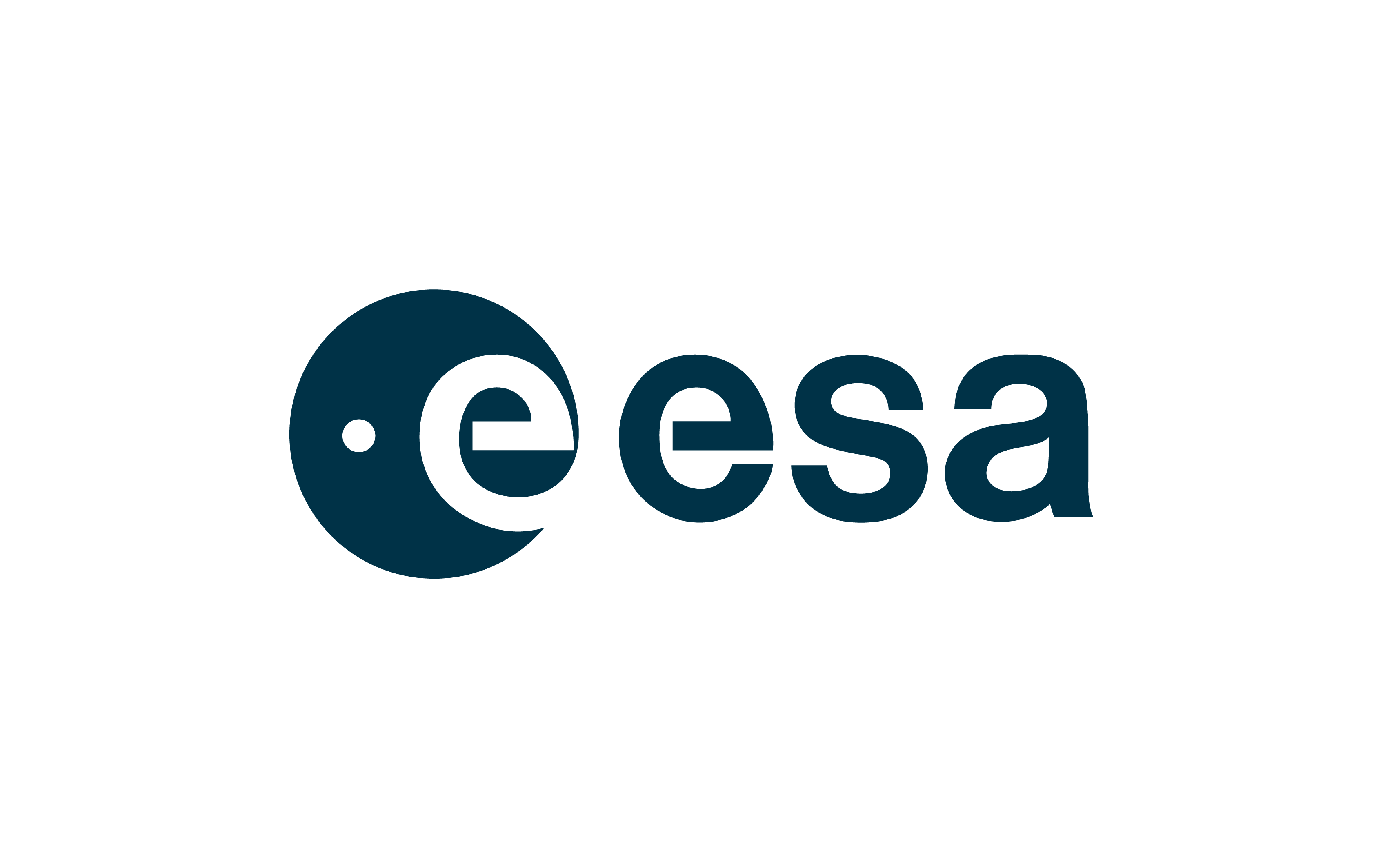




With cutting-edge capabilities and decades of experience, Airbus has all that it takes to design, develop and operate major space systems and deliver powerful insights with our space-based services.
Around the globe, commercial and government customers alike rely on Airbus’ leading space technology and solutions.
We offer telecommunications satellites for any mission, very-high-resolution Earth observation instruments, unique deep space missions, flawless International Space Station operations and are a key contributor in bringing humans back to the moon. From the smallest electronic parts and spacecraft equipment to in-orbit delivery of satellites and associated services, reaching for the stars is our daily business.
Airbus is a global leader in aeronautics, space and related services.




Astroscale is the first private company with a vision for the safe and sustainable development of space for the benefit of future generations, and the leading company solely dedicated to on-orbit servicing across all orbits.
Astroscale is developing innovative and scalable solutions across the spectrum of on-orbit servicing, including life extension, in situ space situational awareness, end of life, and active debris removal, to create sustainable space systems and mitigate the growing and hazardous build-up of debris in space.
Astroscale is also defining business cases and working with government and commercial stakeholders to develop norms, regulations, and incentives for the responsible use of space.


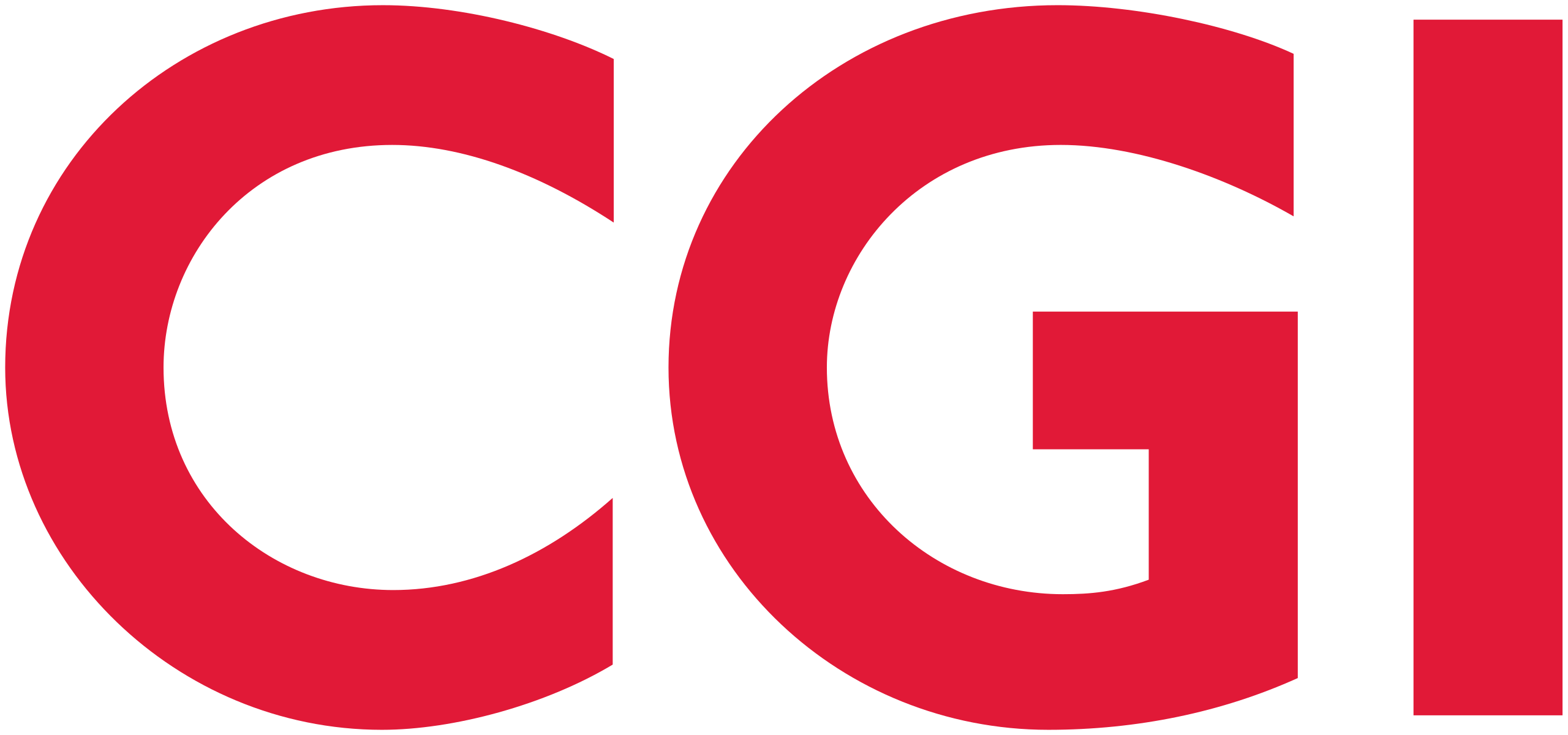
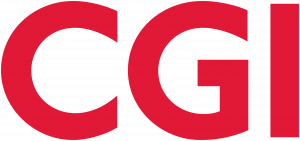
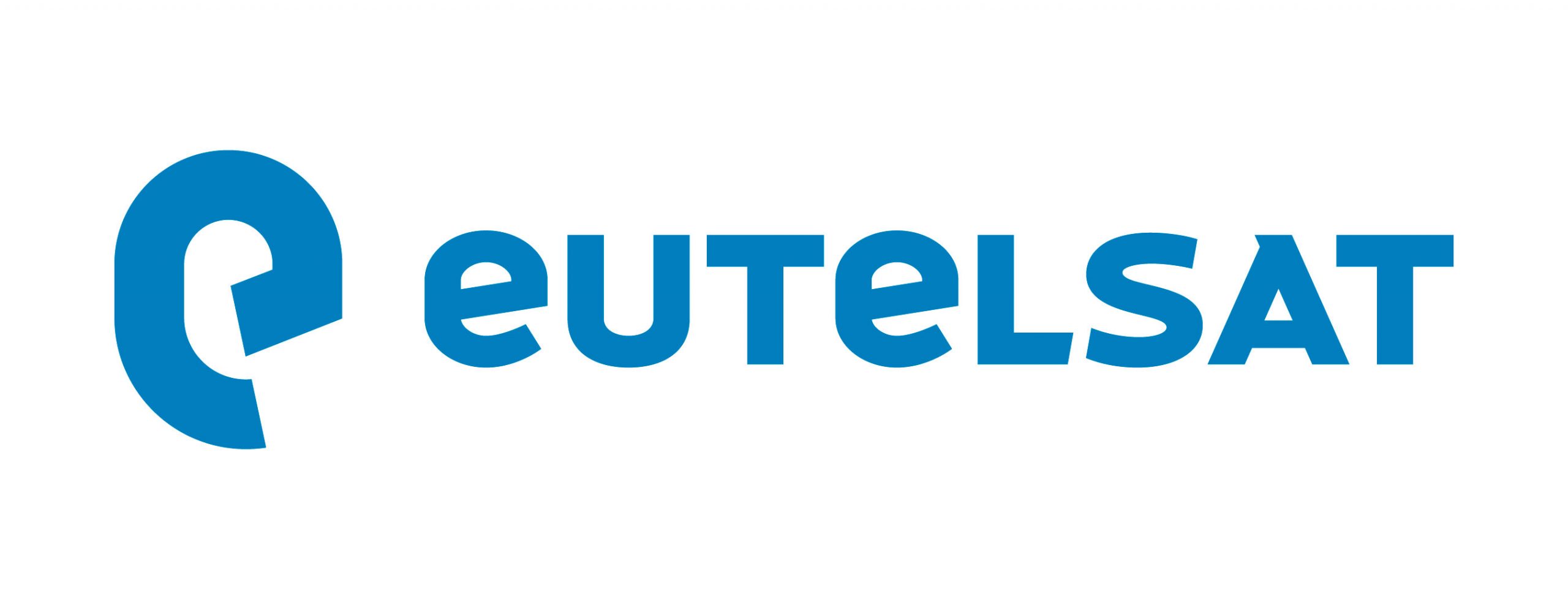









Neuraspace is a pioneer company in the use of AI/ML to fight Space Debris and collisions that can destroy satellites, enabling satellite operators to detect up to 50% more high-risk collisions that have been so far undetected and reducing the need for human intervention up to 2/3.
Neuraspace allows satellite operators to reduce operational manpower efforts, in particular for large constellations. The number of false alerts will be fewer, and the time between close approach and manoeuvre decision will be less. Thus, you will save on fuel and time, while collisions and the menace of space debris will be minimized.
Neuraspace provides an end-to-end solution centered around: (1) Data Fusion; (2) AI and Machine Learning; and (3) Manoeuvring Automation.
To contribute to the evolution of spacecraft operations, Neuraspace aims to solve the space debris problem by protecting satellites operators from the losses caused by collisions, liabilities from leaving debris in orbit and allowing insurance companies to better price the risk that each satellite poses.



















Drawing on over 40 years of experience and a unique combination of skills, expertise and cultures, Thales Alenia Space delivers cost-effective solutions for telecommunications, navigation, Earth observation, environmental management, exploration, science and orbital infrastructures. Governments and private industry alike count on Thales Alenia Space to design satellite-based systems that provide anytime, anywhere connections and positioning, monitor our planet, enhance management of its resources, and explore our Solar System and beyond. Thales Alenia Space sees space as a new horizon, helping to build a better, more sustainable life on Earth. A joint venture between Thales (67%) and Leonardo (33%), Thales Alenia Space also teams up with Telespazio to form the parent companies’ Space Alliance, which offers a complete range of services. Thales Alenia Space posted consolidated revenues of approximately 2.15 billion euros in 2021 and has around 8,900 employees in 10 countries with 17 sites in Europe and a plant in the US.






© Copyright Forum Europe. All rights reserved | Privacy Policy | Terms and Conditions | Cookies Policy | Booking Terms and Conditions | Registered in UK | Registered Office: Unit 5 Sovereign Quay, Havannah Street, Cardiff CF10 5SF | Tel: +44 (0) 2920 783 020 | Email: info@forum-europe.com